Among Japan’s many cultural treasures, onsen—natural hot springs—hold a special place in the hearts of both locals and visitors. These geothermal baths are not merely places to soak and relax. They’re sanctuaries that embody the essence of Japanese hospitality, wellness, and nature. In this guide, we’ll explore three of Japan’s premier onsen towns: Norikura, Yuzawa, and Noboribetsu.
Audrey and I had a chance to visit all three on our most recent trip to Japan. What’s fascinating about Japanese onsen towns is just how distinct and different they are from one another. One place could be a quiet retreat whereas another is a bustling resort town. It’s such a distinct contrast in experience.
We honestly just couldn’t get enough of them! I could see us coming back to Japan in the future with a trip specifically planned around different onsen towns. They’re simply that fun and relaxing.
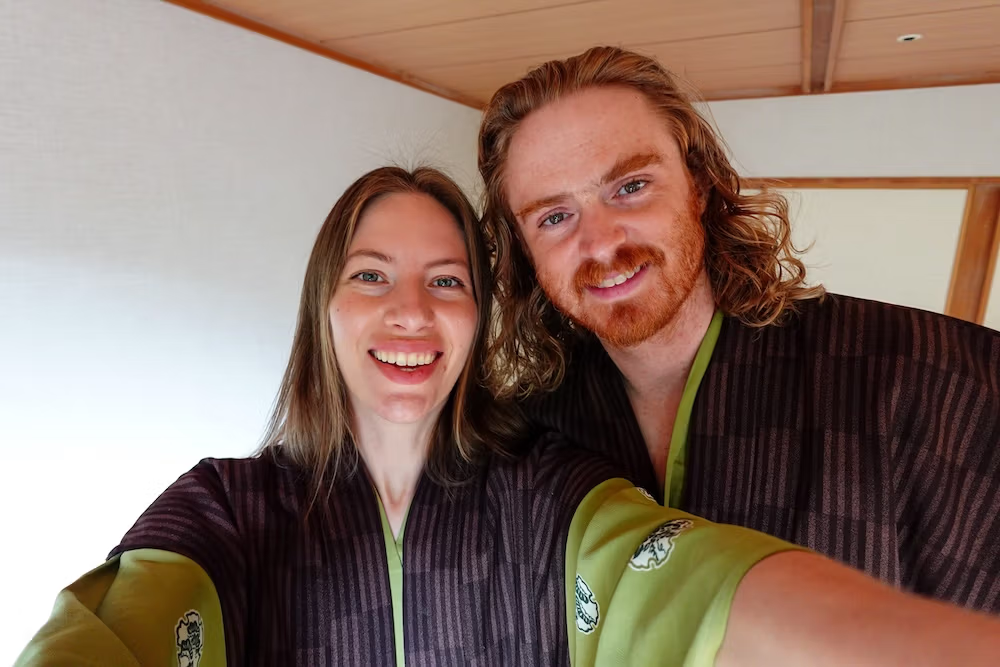
Embracing the Onsen Culture
Japan’s onsen culture is a profound tradition that has been an integral part of Japanese life for centuries. These hot springs are more than just warm waters. They represent a deep connection between humans and nature. Geothermal activity heats the water, infusing it with minerals that are believed to offer various health benefits, from soothing tired muscles to improving skin health.
Onsen are scattered throughout Japan’s diverse landscapes, each offering a distinct experience influenced by the surrounding environment. Whether nestled in the mountains, perched by the sea, or located in volcanic regions, every onsen has its own unique charm and therapeutic qualities.
The significance of onsen in Japanese lifestyle extends beyond relaxation. They serve as communal spaces where people come together to unwind, socialize, and rejuvenate. For many Japanese, visiting an onsen is a cherished ritual that promotes both physical well-being and mental tranquility.
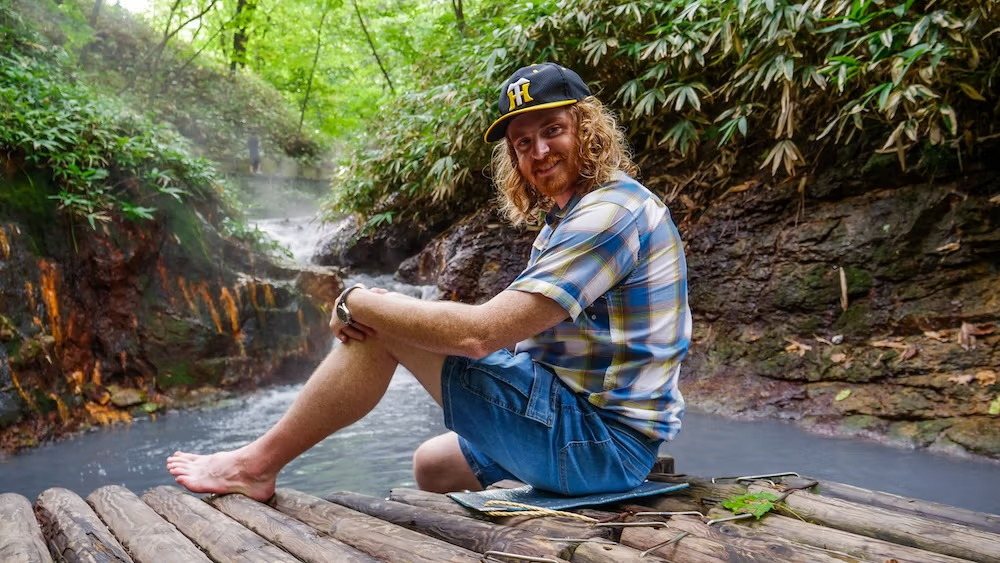
Standout Onsen Towns In Japan
This guide aims to illuminate the beauty and uniqueness of three standout onsen towns in Japan: Norikura, Yuzawa, and Noboribetsu. Each of these towns offers a distinct onsen experience, shaped by their geographical locations, natural surroundings, and cultural heritage.
- Norikura: A serene mountain retreat ideal for nature enthusiasts and hikers.
- Yuzawa: A vibrant resort town renowned for its winter sports and lively atmosphere.
- Noboribetsu: A geothermal wonderland with dramatic landscapes and a rich variety of hot springs.
source: Nomadic Samuel and That Backpacker via Samuel and Audrey YouTube channel
Norikura Onsen
Location and Accessibility
Norikura Onsen is strategically located within the Norikura Kogen area of Nagano Prefecture, a region renowned for its stunning alpine scenery and outdoor recreational opportunities. The onsen town is situated at an elevation that provides panoramic views of towering mountain peaks, verdant forests, and sparkling rivers. This elevated position not only enhances the natural beauty but also contributes to the pristine quality of its hot springs.
Transportation Options
Getting to Norikura Onsen is relatively straightforward, thanks to Japan’s efficient transportation network. Here are the primary ways to reach this serene destination:
Nearest Airports
- Chubu Centrair International Airport (NGO): Located in Nagoya, this is the closest major international airport to Norikura Onsen. From the airport, travelers can embark on a scenic 3-hour drive to reach the onsen town. Numerous car rental services and shuttle buses are available for this journey.
- Tokyo Narita International Airport (NRT): For those arriving directly in Tokyo, flying into Narita is a viable option. From Narita, take the Shinkansen (bullet train) to Nagano Station, which takes approximately 1.5 hours. From Nagano, transfer to a local train or bus heading towards Norikura Onsen.
Trains
- Shinkansen (Bullet Train): The Hokuriku Shinkansen line connects Tokyo to Nagano Station in about 1.5 hours. This high-speed train offers a comfortable and swift journey, allowing travelers to maximize their time exploring Norikura Onsen.
- Local Trains and Buses: Upon arriving at Nagano Station, transfer to the Nagano Electric Railway or opt for a direct bus service to Norikura Onsen. The local trains provide a scenic route, passing through picturesque landscapes that set the tone for your onsen experience.
Roads
- Nagano Expressway: For those who prefer driving, Norikura Onsen is easily accessible via the Nagano Expressway. The expressway connects to major highways, ensuring a smooth and scenic drive through the countryside. The well-maintained roads make the journey both safe and enjoyable, with numerous rest stops offering views of the surrounding nature.
- Car Rentals: Renting a car provides the flexibility to explore the wider Norikura Kogen area at your own pace. Local car rental services offer a range of vehicles, including options suitable for mountainous terrain and varying weather conditions.
Additional Transportation Tips
- Shuttle Services: Many ryokan (traditional inns) and hotels in Norikura Onsen offer shuttle services for their guests. It’s advisable to check with your accommodation provider in advance to arrange transportation from major transit points.
- Public Transportation Passes: Consider purchasing regional transportation passes that offer unlimited travel on trains and buses within Nagano Prefecture. This can be a cost-effective way to explore multiple attractions without worrying about individual ticket costs.
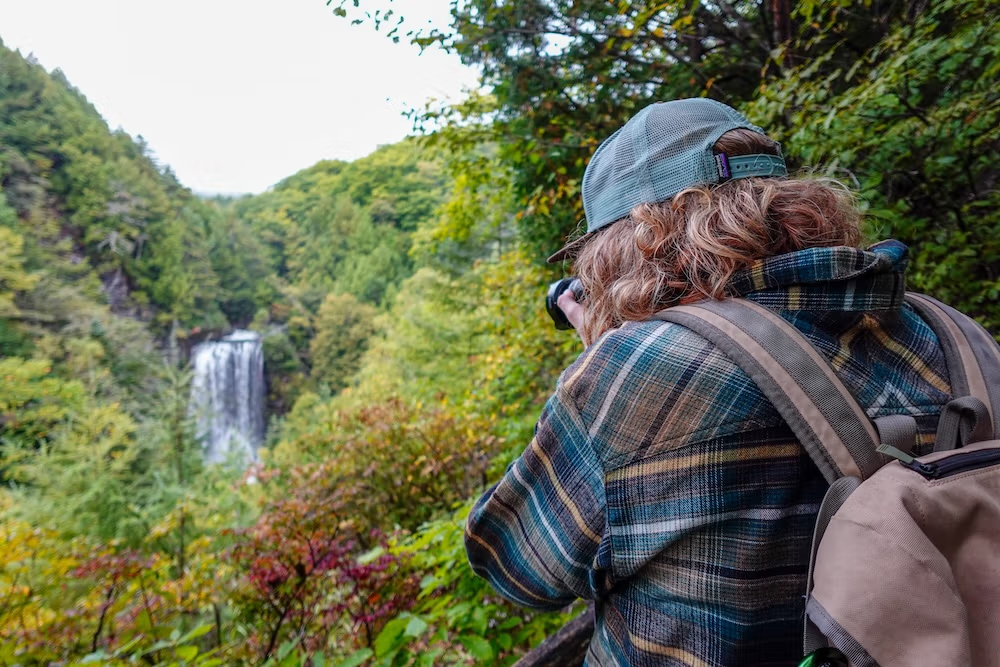
Unique Features of Norikura Onsen
Scenic Mountain Views and Pristine Natural Surroundings
One of the standout features of Norikura Onsen is its unparalleled natural beauty. Surrounded by majestic mountain ranges, the onsen town offers a serene environment where visitors can immerse themselves in the tranquility of nature. The clear, crisp mountain air, the sound of flowing rivers, and the vibrant hues of seasonal foliage create a harmonious backdrop for relaxation and rejuvenation.
Variety of Hot Spring Types
Norikura Onsen boasts a diverse range of hot springs, each with its own unique mineral composition and therapeutic benefits. This variety ensures that every visitor can find an onsen experience tailored to their specific needs and preferences.
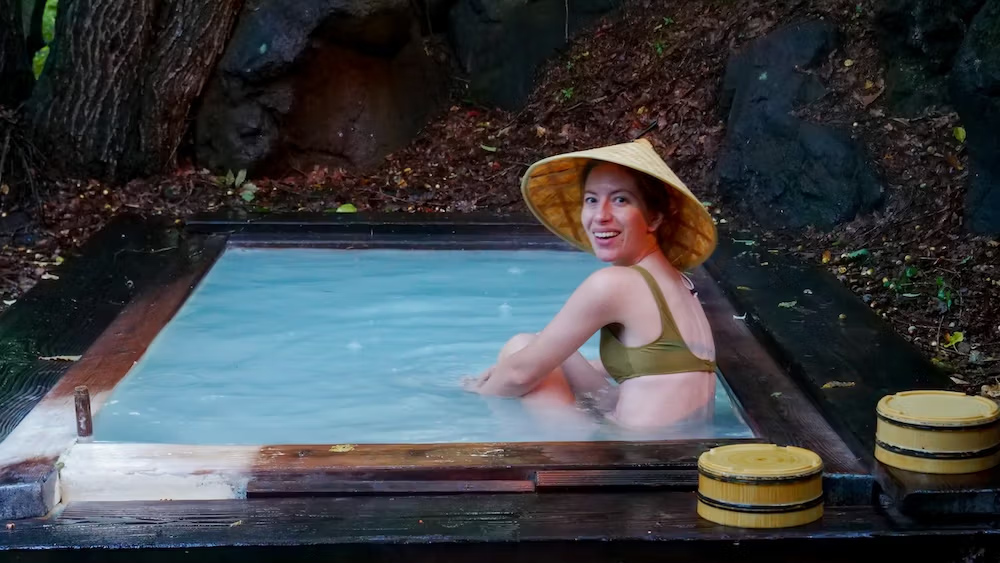
Sulfur Springs
- Characteristics: These springs emit a distinct sulfuric aroma and possess a milky-white appearance due to the high sulfur content.
- Health Benefits: Sulfur-rich waters are renowned for their skin-enhancing properties. Regular bathing can improve complexion, treat skin conditions like eczema and acne, and provide a soothing effect on irritated skin.
- Experience: The sulfur springs offer a luxurious, aromatic soak that not only relaxes the body but also leaves the skin feeling revitalized and refreshed.
Carbonated Springs
- Characteristics: Carbonated springs are effervescent, with tiny bubbles rising to the surface, creating a sparkling appearance.
- Health Benefits: The carbonation in the water is believed to enhance blood circulation, alleviate fatigue, and detoxify the body. This makes carbonated springs ideal for those seeking an invigorating and revitalizing onsen experience.
- Experience: Soaking in carbonated springs provides a refreshing and energizing bath, perfect after a day of outdoor activities or hiking.
Iron-Rich Springs
- Characteristics: These springs have a reddish tint due to their high iron content, giving the water a unique and vibrant appearance.
- Health Benefits: Iron-rich waters are excellent for soothing muscle aches, joint pains, and improving overall physical well-being. The high iron content also aids in the treatment of anemia and promotes healthy blood circulation.
- Experience: Bathing in iron-rich springs offers a therapeutic and comforting experience, providing relief from physical ailments while enveloping you in warm, mineral-rich waters.
Therapeutic and Wellness Benefits
The mineral composition of Norikura Onsen’s hot springs is carefully balanced to offer targeted health benefits. Whether you’re seeking to relieve muscle soreness, improve skin health, or simply relax and de-stress, the onsen waters provide a holistic approach to wellness. Many visitors find that regular visits to the onsen contribute to long-term health improvements, making it a cherished part of their wellness routine.
Cultural Significance and Traditional Hospitality
Norikura Onsen is steeped in tradition, with many of its ryokan and bathhouses preserving ancient customs and practices. The Japanese concept of “omotenashi”—unwavering hospitality—shines through in every interaction, ensuring that guests feel welcome and cared for. From the meticulous preparation of meals to the attentive service in the baths, the traditional hospitality enhances the overall onsen experience, making it both relaxing and culturally enriching.
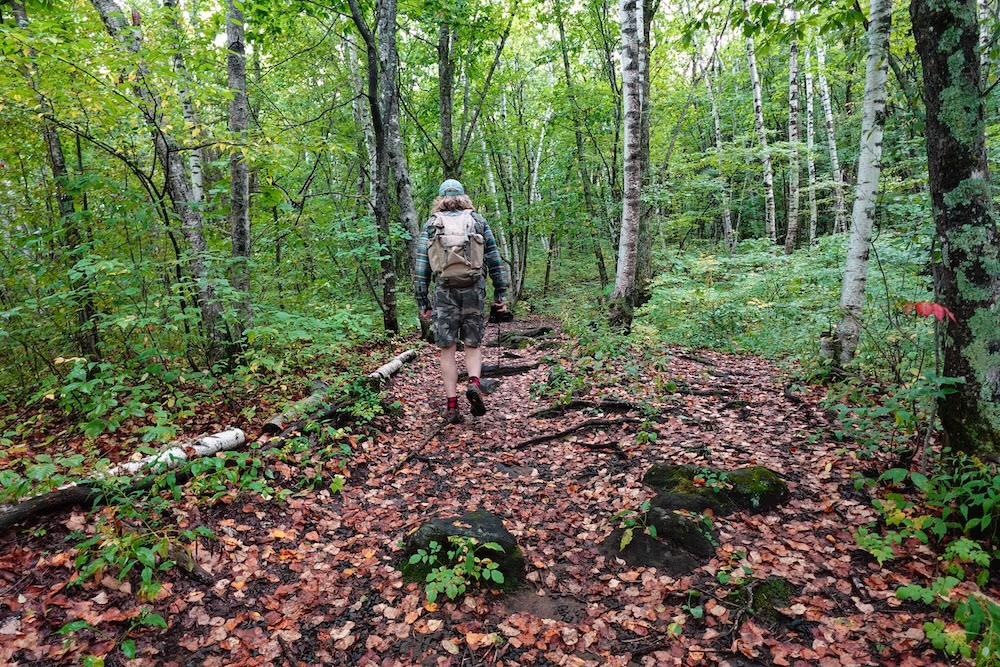
Top Attractions in Norikura
Hiking Trails and Outdoor Activities
Norikura Onsen is a haven for outdoor enthusiasts, offering a plethora of hiking trails and activities that showcase the region’s natural splendor. Whether you’re an experienced hiker or a casual walker, there’s a trail to suit your level of fitness and interest.
Norikura Mountain
- Overview: Norikura Mountain is one of the highest peaks in the area, providing a challenging yet rewarding hike. The summit offers panoramic views that stretch across the surrounding mountain ranges and valleys.
- Trail Details: The trailhead is easily accessible from Norikura Onsen, and the hike typically takes about 5-7 hours round-trip, depending on your pace and the weather conditions. The path is well-marked, with sturdy signage to guide hikers.
- Wildlife and Flora: Along the trail, hikers may encounter a variety of wildlife, including Japanese serow (a goat-antelope), deer, and numerous bird species. The diverse flora ranges from alpine wildflowers in the summer to vibrant autumn foliage.
- Photography Spots: The summit and several lookout points along the trail offer stunning photo opportunities, capturing the expansive landscapes and the interplay of light and shadow on the mountains.
Kamikochi Trail
- Overview: This scenic trail is ideal for those who prefer a more leisurely pace. Kamikochi Trail is renowned for its lush forests, clear streams, and serene ambiance.
- Trail Details: The trail winds through dense cedar and cypress forests, alongside babbling brooks and past picturesque waterfalls. It’s suitable for families and casual hikers, with gentle inclines and well-maintained paths.
- Bird Watching: Kamikochi Trail is a popular spot for bird watchers, offering sightings of various bird species such as the Japanese robin, green pheasant, and kingfisher.
- Relaxation Areas: Numerous rest stops along the trail provide opportunities to sit, relax, and soak in the natural beauty. These areas are perfect for picnics, reading a book, or simply enjoying the peaceful surroundings.
Shirane Pond
- Overview: Shirane Pond is a tranquil oasis within Norikura Onsen, offering a peaceful setting for relaxation and contemplation.
- Activities: Visitors can enjoy paddle boating, fishing, or simply walking around the pond to take in the serene environment. The pond is also a great spot for bird watching, with several waterfowl species frequenting the area.
- Picnic Spots: Designated picnic areas around Shirane Pond are perfect for a leisurely meal amidst nature. Bring a blanket and your favorite snacks to enjoy a relaxing afternoon by the water.
- Seasonal Beauty: Shirane Pond is beautiful year-round, with cherry blossoms blooming in the spring, lush greenery in the summer, vibrant colors in the autumn, and a peaceful, snow-covered landscape in the winter.
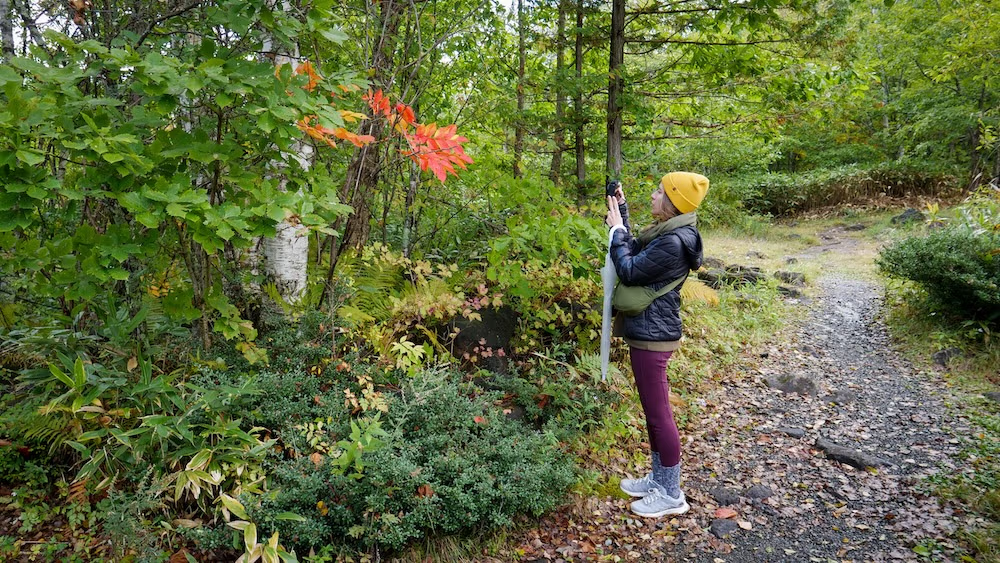
Local Landmarks and Cultural Sites
Norikura Onsen is not only about natural beauty; it also boasts several landmarks and cultural sites that offer a glimpse into the region’s rich heritage and artistic traditions. Let’s explore those.
Norikura Skyline
- Overview: The Norikura Skyline is a scenic road that meanders through the mountains, providing spectacular views of the surrounding landscape.
- Activities: Driving or cycling along the Skyline is a must-do activity for nature lovers and photography enthusiasts. The route includes several lookout points where visitors can stop to admire the panoramic vistas, capture stunning photographs, and enjoy the fresh mountain air.
- Flora and Fauna: The Skyline passes through diverse ecosystems, featuring dense forests, open meadows, and rocky outcrops. Wildlife sightings along the route are common, adding to the allure of the drive.
- Accessibility: The Skyline is accessible by car, bicycle, or even on foot for those who wish to explore specific sections. It’s particularly enchanting during sunrise and sunset when the sky is painted with vibrant colors.
Norikura Kogen Highland
- Overview: The Norikura Kogen Highland is a vast expanse of highland meadows and diverse flora, making it a prime spot for nature lovers and botanists.
- Activities: Visitors can explore the highland through various walking trails that showcase the region’s rich biodiversity. The area is perfect for leisurely strolls, photography, and observing the local wildlife.
- Flora: During spring and summer, the highlands burst into a riot of colors with blooming wildflowers, including edelweiss, gentians, and various alpine plants. In autumn, the foliage transforms into vibrant hues of red, orange, and yellow.
- Picnicking and Relaxation: Expansive meadows provide ample space for picnicking and relaxation. Spread out a blanket, enjoy a meal, and take in the serene beauty of the highland surroundings.
Local Shrines
- Overview: Scattered throughout Norikura Onsen are small, serene shrines that offer a glimpse into the local spiritual practices and cultural heritage.
- Cultural Significance: These shrines are often dedicated to deities associated with nature, agriculture, and local legends. They serve as places of worship, meditation, and community gatherings.
- Architecture: Traditional shrine architecture, featuring wooden structures, stone torii gates, and meticulously maintained gardens, adds to the cultural charm of Norikura Onsen.
- Visitor Experience: Visitors are welcome to explore these shrines, participate in traditional rituals, and experience the peaceful ambiance. It’s a wonderful way to connect with the local culture and appreciate the spiritual aspect of the region.
Tips for Visiting Norikura
- Best Times to Visit: Spring and autumn are ideal for hiking and enjoying the vibrant foliage. Spring brings blooming cherry blossoms and lush greenery, while autumn showcases a stunning display of autumn leaves. Winter offers a peaceful, snow-covered landscape, perfect for a quiet retreat.
- Seasonal Activities and Events:
- Cherry Blossom Festivals: Held in spring, these festivals celebrate the blooming of cherry blossoms with picnics, traditional performances, and illuminated night views.
- Autumn Leaf Viewing: In fall, the town is transformed by the vibrant colors of the changing leaves, making it a prime time for photography and leisurely walks.
- Snow Festivals: Winter festivals feature intricate ice sculptures, winter sports competitions, and local cultural performances, providing entertainment and a festive atmosphere.
Pro Tip: Book your accommodations well in advance, especially during peak seasons like cherry blossom and autumn leaf viewing times. This ensures availability and allows you to secure the best rates for your stay.
source: That Backpacker + Nomadic Samuel via YouTube
Yuzawa Onsen
Yuzawa Onsen, nestled in the heart of Niigata Prefecture, is a renowned hot spring town that epitomizes the perfect blend of natural beauty, cultural richness, and modern amenities. Famed for its heavy snowfall and exceptional skiing conditions, Yuzawa is a year-round destination that attracts both domestic and international travelers seeking relaxation, adventure, and an authentic Japanese onsen experience.
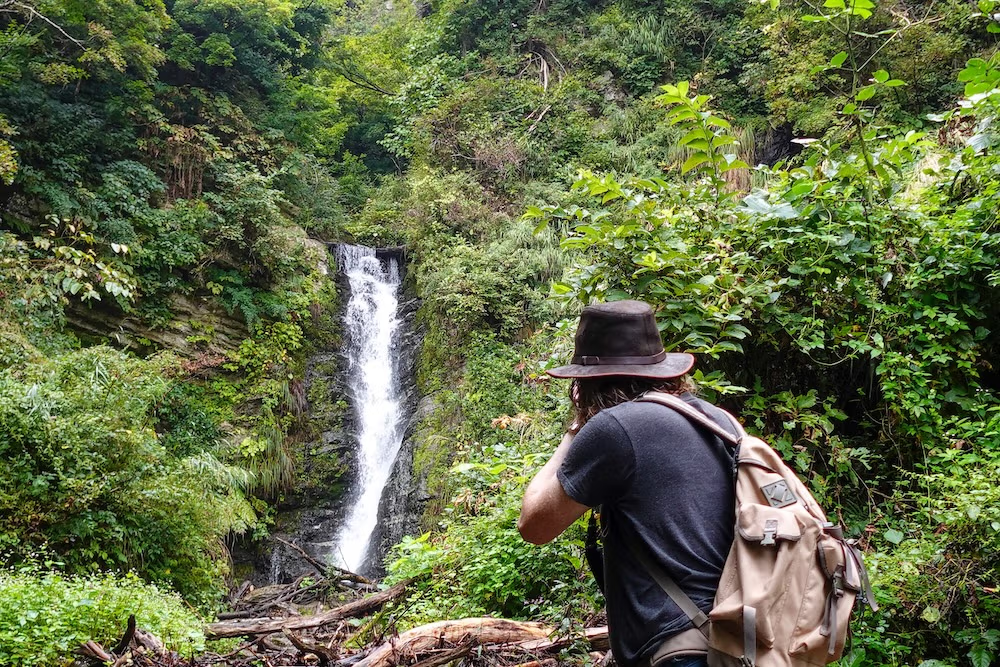
Location and Accessibility
Geographical Context
Yuzawa Onsen is strategically located on Honshu, Japan’s main island, within the Niigata Prefecture. This region is celebrated for its abundant snowfall in the winter months, making it a premier destination for winter sports enthusiasts. Yuzawa itself is situated in a valley surrounded by majestic mountains, providing stunning vistas and a serene environment that enhances the onsen experience.
Niigata Prefecture is bordered by the Sea of Japan to the west, offering picturesque coastal landscapes alongside its mountainous terrains. The prefecture is also known for its rich agricultural produce, including high-quality rice and sake, which contribute to the region’s vibrant culinary scene.
Transportation Options
Yuzawa Onsen’s accessibility is one of its standout features, making it a favored destination for travelers from various parts of Japan and beyond. Here are the primary transportation options to reach Yuzawa Onsen:
Nearest Airports
- Niigata Airport (KIJ)
- Location: Approximately 70 kilometers from Yuzawa Onsen.
- Accessibility: From Niigata Airport, travelers can take a direct bus or train to Yuzawa Onsen. The bus ride typically takes around 1.5 to 2 hours, depending on traffic and weather conditions.
- International Flights: While Niigata Airport primarily handles domestic flights, some international carriers offer seasonal services, especially during peak tourism seasons.
- Narita International Airport (NRT)
- Location: Located near Tokyo, about 3 hours by Shinkansen (bullet train) to Yuzawa Onsen.
- Accessibility: After arriving at Narita, take the Narita Express to Tokyo Station, then transfer to the Joetsu Shinkansen bound for Yuzawa Station. The entire journey from Narita to Yuzawa takes approximately 3 hours, offering a swift and comfortable travel experience.
- Haneda Airport (HND)
- Location: Closer to central Tokyo, making it a convenient option for travelers.
- Accessibility: From Haneda Airport, take the Tokyo Monorail to Hamamatsucho Station, then transfer to the Shinkansen to Yuzawa Station. The total travel time is slightly shorter than from Narita, typically around 2.5 to 3 hours.
Shinkansen (Bullet Train)
- Joetsu Shinkansen
- Route: Connects Tokyo to Yuzawa Station in approximately 75 minutes.
- Frequency: Multiple departures daily, providing flexibility for travelers to choose departure times that best fit their schedules.
- Amenities: The Shinkansen offers comfortable seating, ample legroom, and onboard services such as vending machines and clean restrooms. Some trains also provide reserved seating options for added convenience.
- Scenic Views: Enjoy picturesque landscapes as the train traverses through the mountains and valleys, offering glimpses of snow-covered peaks during the winter months and lush greenery in the summer.
Highways and Road Access
- Kanetsu Expressway
- Route: Yuzawa Onsen is well-connected via the Kanetsu Expressway, which links Tokyo to Niigata Prefecture.
- Accessibility: The expressway facilitates easy road access for those traveling by car or bus. It is maintained to high standards, ensuring a smooth and safe journey through the beautiful countryside.
- Driving Time: From Tokyo, the drive to Yuzawa Onsen via the Kanetsu Expressway takes approximately 3 to 4 hours, depending on traffic and weather conditions.
- Local Roads
- Route: Upon approaching Yuzawa, travelers can follow local road signs to reach the various onsen resorts and accommodations.
- Scenic Drives: The drive offers scenic views of rolling hills, dense forests, and charming rural landscapes, making it an enjoyable part of the trip.
Alternative Transportation Options
- Bus Services
- Highway Buses: Direct highway buses from major cities like Tokyo, Yokohama, and Osaka are available, providing an economical alternative to the Shinkansen. The journey time ranges from 4 to 6 hours, depending on the departure point.
- Local Buses: Within Niigata Prefecture, local buses connect Yuzawa Onsen to nearby attractions and neighboring towns, offering convenient access for day trips and excursions.
- Car Rentals
- Flexibility: Renting a car offers the flexibility to explore Yuzawa Onsen and its surrounding areas at your own pace. It is especially beneficial for those planning to visit multiple onsen resorts or engage in outdoor activities.
- Availability: Numerous car rental agencies operate in major cities and airports, providing a range of vehicles to suit different needs. Ensure you have an International Driving Permit (IDP) if you’re a foreign visitor.
Additional Transportation Tips
- Shuttle Services: Many ryokan (traditional inns) and hotels in Yuzawa Onsen offer shuttle services for their guests. It’s advisable to check with your accommodation provider in advance to arrange transportation from major transit points.
- Public Transportation Passes: Consider purchasing regional transportation passes that offer unlimited travel on trains and buses within Niigata Prefecture. This can be a cost-effective way to explore multiple attractions without worrying about individual ticket costs.
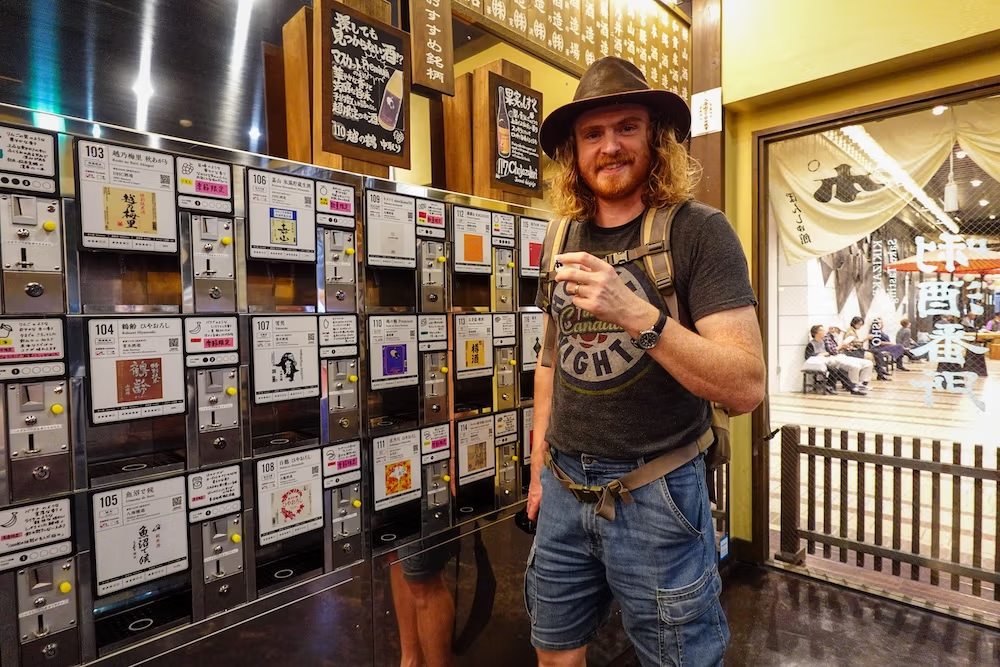
Unique Features of Yuzawa Onsen
Winter Sports Excellence
Yuzawa Onsen is globally recognized for its outstanding winter sports facilities. The town experiences heavy snowfall each winter, creating ideal conditions for skiing, snowboarding, and other snow-related activities. The consistent snowfall ensures that the slopes remain in excellent condition throughout the season, attracting both novice skiers and seasoned athletes.
Variety of Onsen Options
Yuzawa boasts an impressive array of onsen options, catering to diverse preferences and needs. From traditional, rustic baths nestled in the mountains to luxurious, modern spa facilities equipped with advanced amenities, Yuzawa offers something for everyone.
- Traditional Onsen: These baths often feature natural stone or wooden architecture, providing an authentic and immersive experience. The focus is on simplicity and harmony with nature, allowing guests to fully appreciate the natural surroundings.
- Modern Spa Facilities: For those seeking a more contemporary experience, Yuzawa offers onsen with state-of-the-art facilities, including private baths, relaxation lounges, and wellness centers. These spas often incorporate elements like aromatherapy, hydrotherapy, and other therapeutic treatments.
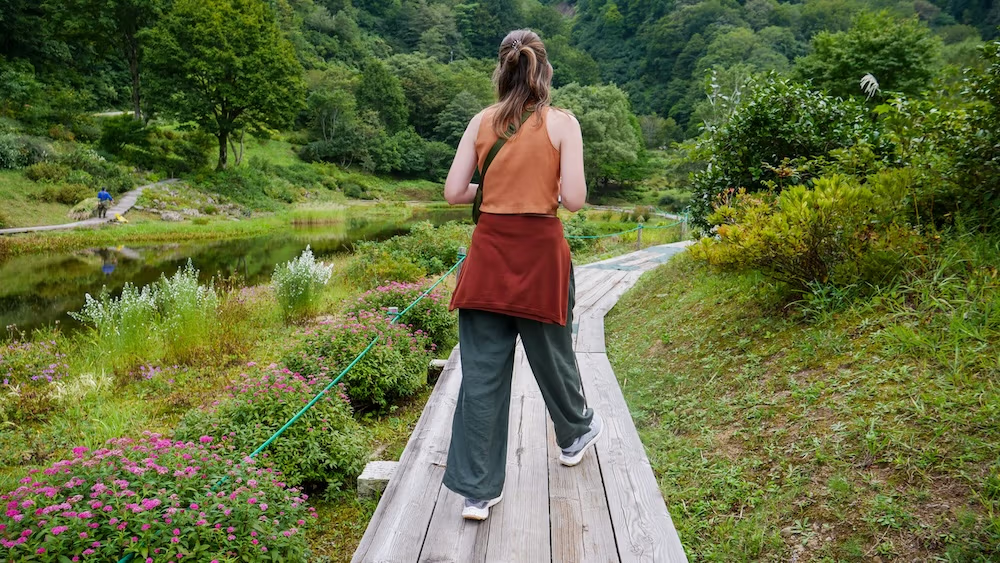
Health and Wellness Benefits
The mineral-rich waters of Yuzawa’s onsen are renowned for their health benefits, making them a popular choice for wellness enthusiasts. Each onsen has a unique mineral composition, offering targeted therapeutic benefits:
- Stress Relief: The warm waters help relax muscles, reduce tension, and promote a sense of calm, making them perfect for unwinding after a day of activities.
- Improved Circulation: The mineral content, particularly carbonated springs, is known to enhance blood circulation, aiding in overall health and vitality.
- Detoxification: Soaking in mineral-rich onsen helps detoxify the body by eliminating impurities and promoting healthy skin.
Vibrant Resort Atmosphere
Yuzawa Onsen is not just about soaking in hot springs; it boasts a lively and energetic atmosphere, especially during the ski season. The town is bustling with activities, entertainment options, and social gatherings, ensuring that visitors have plenty to do beyond enjoying the onsen.
- Nightlife and Entertainment: Yuzawa offers a variety of nightlife options, including bars, karaoke lounges, and live music venues. These establishments provide a fun and lively environment for evening entertainment.
- Shopping and Dining: The town features numerous shops selling local crafts, souvenirs, and specialty goods. Dining options range from traditional Japanese restaurants to international cuisine, catering to diverse tastes and preferences.
Cultural Heritage
Yuzawa Onsen is steeped in cultural heritage, with many traditional festivals, events, and historical sites that offer a glimpse into the region’s rich history and traditions. Visitors can immerse themselves in local customs, participate in cultural activities, and learn about the historical significance of the area.
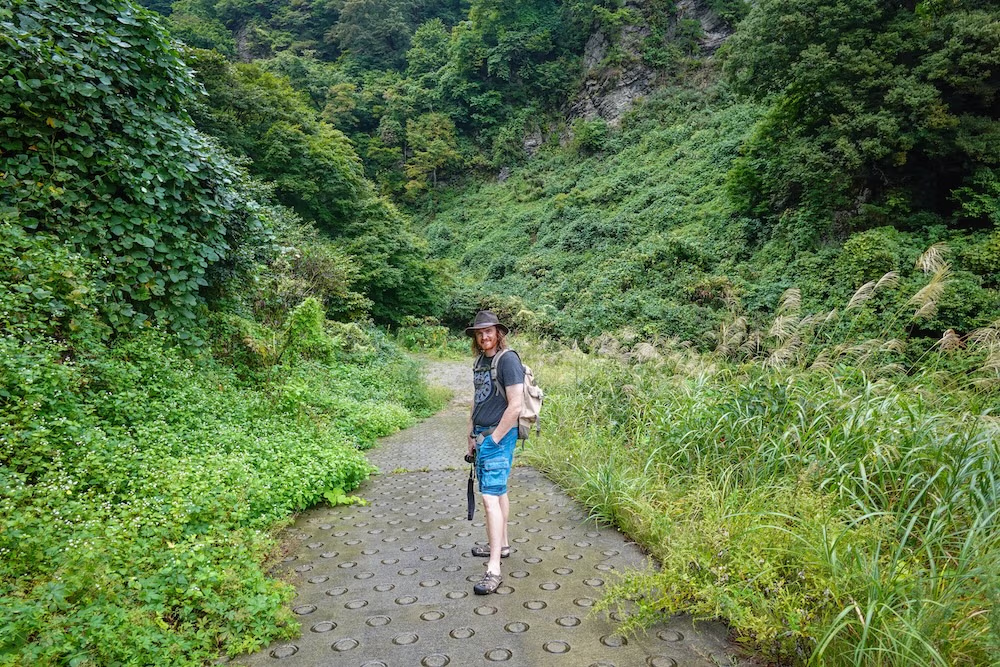
Top Attractions in Yuzawa
Popular Ski Resorts and Winter Activities
Yuzawa is a premier destination for winter sports enthusiasts. The town’s ski resorts are renowned for their excellent snow conditions, well-maintained slopes, and comprehensive facilities. Here are some of the top attractions:
Gala Yuzawa Ski Resort
- Overview: Easily accessible directly from the Shinkansen, Gala Yuzawa is one of the most popular ski resorts in Yuzawa Onsen. Its proximity to the Yuzawa Station makes it incredibly convenient for travelers, eliminating the need for additional transportation.
- Slope Variety: The resort offers a wide range of slopes suitable for all skill levels, from gentle beginner slopes to challenging advanced runs. This diversity ensures that both novice skiers and experienced athletes can find suitable terrain.
- Modern Lifts: Equipped with state-of-the-art ski lifts and gondolas, Gala Yuzawa provides efficient and comfortable access to the slopes. The lifts are designed to minimize wait times and enhance the overall skiing experience.
- Ski Schools: Comprehensive ski schools are available for all age groups and skill levels, offering lessons from certified instructors. Whether you’re a first-time skier or looking to refine your technique, the ski schools provide personalized instruction to help you make the most of your time on the slopes.
- Rental Shops: Gala Yuzawa is home to numerous rental shops that offer a wide range of equipment, including skis, snowboards, helmets, and protective gear. The rental process is streamlined, allowing visitors to easily find and rent the gear they need without hassle.
- Family-Friendly Amenities: The resort is well-equipped with facilities catering to families, including childcare services, designated beginner areas, and family-friendly dining options. This makes Gala Yuzawa an ideal choice for families looking to enjoy a memorable winter getaway.
Echigo-Yuzawa Snow Festival
- Overview: An annual event that transforms Yuzawa into a winter wonderland, the Echigo-Yuzawa Snow Festival is a must-see attraction for both locals and tourists. Held during the peak of the winter season, the festival showcases impressive snow sculptures, ice skating rinks, and vibrant fireworks displays.
- Snow Sculptures: Artists from across Japan and beyond come to create intricate and massive snow sculptures. These artistic creations range from traditional Japanese motifs to contemporary designs, offering something for every visitor.
- Ice Skating Rinks: The festival features several ice skating rinks where visitors can enjoy skating in a festive environment. Whether you’re a seasoned skater or a beginner, the rinks provide a fun and engaging activity for all ages.
- Fireworks Displays: In the evenings, the festival culminates with spectacular fireworks displays that light up the snowy landscape. The combination of fireworks and snow creates a magical and unforgettable visual experience.
- Cultural Performances: Alongside the snow and ice attractions, the festival includes traditional performances such as taiko drumming, dance, and music, offering a cultural enrichment experience for attendees.
Ski Schools and Rentals
Yuzawa Onsen offers numerous ski schools and rental shops, ensuring that even first-time skiers can enjoy the slopes with proper guidance and equipment.
- Ski Schools: There are various ski schools catering to different age groups and skill levels. Lessons are available for children, adults, beginners, and advanced skiers, providing personalized instruction to help you improve your skiing abilities.
- Specialized Programs: Some ski schools offer specialized programs, such as freestyle skiing, backcountry skiing, and snowboarding clinics. These programs are designed to enhance specific skills and cater to individual interests.
- Rental Shops: Yuzawa’s rental shops are well-stocked with high-quality equipment, including the latest models of skis, snowboards, helmets, and protective gear. Many rental shops also offer package deals that include equipment rental, lessons, and lift passes, providing convenience and cost savings for visitors.
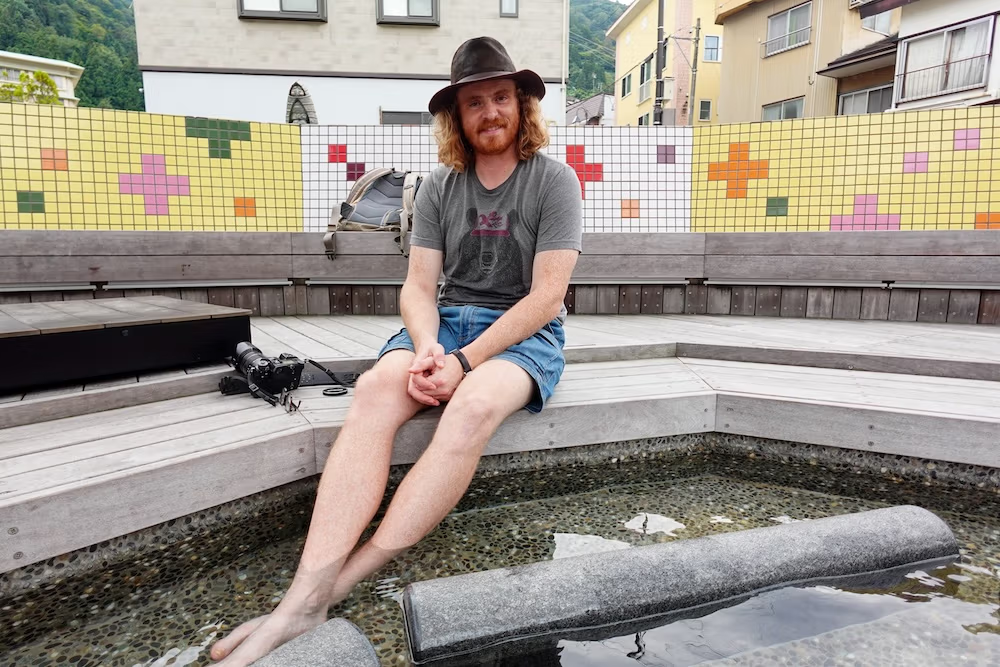
Summer Attractions like Hiking and River Rafting
Yuzawa Onsen is not just a winter destination; it transforms into a vibrant summer retreat with a plethora of outdoor activities. The lush greenery and pleasant weather make it an ideal time to explore the natural beauty of Niigata Prefecture.
Hiking Trails
- Overview: The summer months unveil a network of hiking trails that allow visitors to explore the beautiful landscapes of Niigata Prefecture. Trails vary in difficulty, offering options for casual walkers and avid hikers alike.
- Trail Variety: Yuzawa offers a diverse range of hiking trails that cater to different skill levels and interests. From leisurely nature walks to challenging mountain treks, there is a trail for everyone.
- Scenic Views: The trails provide stunning views of the mountains, valleys, and lush forests. Hikers can enjoy panoramic vistas, hidden waterfalls, and picturesque meadows along the way.
- Wildlife and Flora: Summer is a great time to observe the rich biodiversity of the region. Hikers may encounter various wildlife species, including birds, deer, and small mammals, as well as a variety of wildflowers and plant species in full bloom.
- Guided Tours: For those who prefer guided experiences, several local organizations offer guided hiking tours that provide insights into the region’s ecology, geology, and cultural history.
River Rafting
- Overview: The Shinano River, known for its clear waters and exciting rapids, offers excellent opportunities for thrilling river rafting adventures. The river flows through the scenic landscapes of Niigata Prefecture, providing an exhilarating experience for adventure seekers.
- Guided Tours: Several companies offer guided river rafting tours that cater to different experience levels, from beginners to seasoned rafters. These tours provide all necessary equipment, safety gear, and expert guidance to ensure a safe and enjoyable adventure.
- Rapids Classification: The Shinano River features rapids of varying difficulty, classified according to the International Scale of River Difficulty. Whether you’re looking for a mild, scenic float or a challenging ride through Class III or IV rapids, there’s a rafting option to suit your preferences.
- Safety Measures: Safety is a top priority for river rafting tours in Yuzawa. All participants receive a safety briefing, and professional guides are trained to handle emergency situations, ensuring a secure and fun experience for everyone.
- Scenic Beauty: Rafting on the Shinano River allows participants to immerse themselves in the natural beauty of the region. The journey offers breathtaking views of the surrounding mountains, forests, and waterfalls, making it a memorable and picturesque adventure.
Cycling Routes
- Overview: Yuzawa Onsen features several scenic cycling paths that wind through the countryside, offering a leisurely way to explore the natural beauty of the region. Whether you’re an avid cyclist or a casual rider, the well-maintained routes provide a pleasant and safe environment for biking.
- Route Variety: The cycling routes in Yuzawa cater to different levels of cyclists. From flat, easy paths suitable for beginners and families to more challenging routes for experienced cyclists, there’s a route to match every skill level.
- Scenic Highlights: Cyclists can enjoy a variety of scenic highlights along the routes, including picturesque rural landscapes, traditional Japanese villages, and stunning mountain views. The routes often pass by local farms, offering opportunities to stop and experience the region’s agricultural heritage.
- Bike Rentals: Several bike rental shops in Yuzawa Onsen offer a range of bicycles, including mountain bikes, road bikes, and electric bikes. Rental packages may include maps, helmets, and other necessary equipment, making it easy for visitors to enjoy a hassle-free cycling experience.
- Cycling Tours: For those who prefer a guided experience, local tour operators offer cycling tours that provide insights into the region’s history, culture, and natural environment. These tours are designed to enhance the cycling experience with informative commentary and guided stops at key points of interest.
Tips for Visiting Yuzawa
- Navigating Peak Seasons: Yuzawa is especially busy during the ski season and holiday periods. To avoid crowds, consider visiting during weekdays or shoulder seasons. Booking accommodations and ski passes in advance can help secure the best rates and ensure availability.
- Enjoying Both Winter and Summer Activities: Yuzawa’s transformation with the seasons means you can enjoy a variety of activities throughout the year. Pack appropriately for the activities you plan to engage in, whether it’s winter sports gear or summer hiking attire.
- Advance Bookings: To make the most of your trip, book your accommodations, ski passes, and any special activities well in advance, especially during high-demand periods like the New Year and Golden Week.
Pro Tip: Take advantage of the Shinkansen’s direct access to Yuzawa Station, allowing for seamless day trips from Tokyo. This makes Yuzawa an excellent option for both short getaways and extended vacations.
source: Nomadic Samuel teaming up with That Backpacker on Samuel and Audrey YT channel
Noboribetsu Onsen
Noboribetsu Onsen, located on Japan’s northernmost island of Hokkaido, is a premier hot spring destination renowned for its stunning natural beauty, active geothermal activity, and diverse range of therapeutic waters. As one of Hokkaido’s most popular tourist destinations, Noboribetsu Onsen offers visitors a unique blend of relaxation, adventure, and cultural experiences, making it an ideal retreat for both domestic and international travelers.
Location and Accessibility
Geographical Context
Noboribetsu Onsen is situated within Hokkaido, Japan’s largest and northernmost island, known for its pristine natural environments, abundant wildlife, and harsh winters. The onsen town lies approximately 1.5 hours south of Sapporo, the capital city of Hokkaido, making it easily accessible while still offering a serene escape from urban life. Nestled in a valley surrounded by rugged mountains and lush forests, Noboribetsu Onsen is part of the Shikotsu-Toya National Park, a UNESCO-designated site celebrated for its volcanic landscapes and diverse ecosystems.
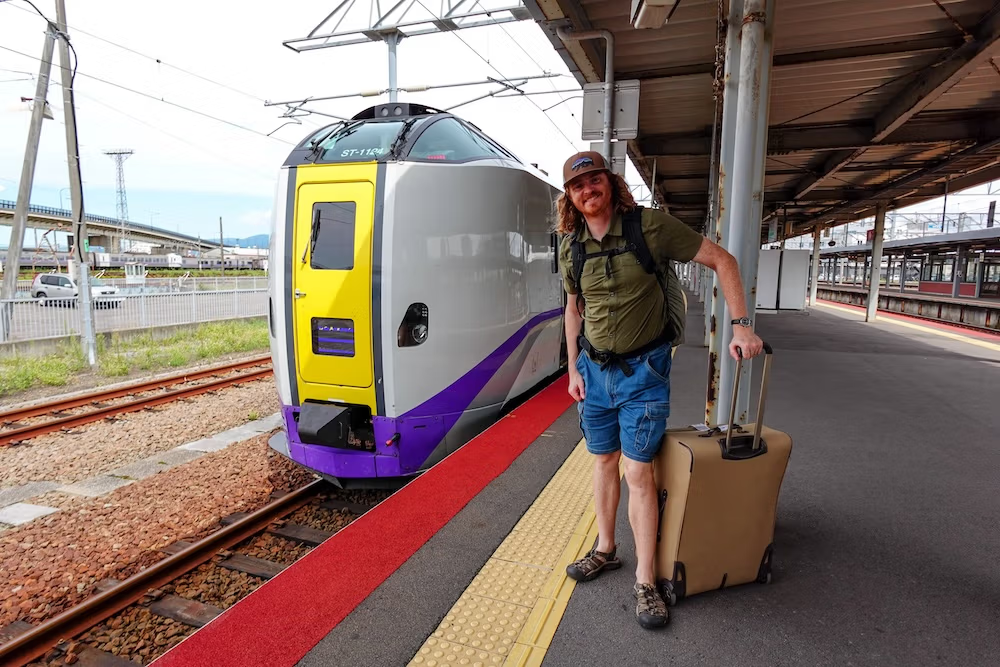
Transportation Options
Nearest Airports
- New Chitose Airport (CTS):
- Location: Approximately 70 kilometers northwest of Noboribetsu Onsen.
- Accessibility: From New Chitose Airport, travelers can take a direct train or bus to Noboribetsu. The Limited Express Super Hokuto train connects the airport to Sapporo Station in about 40 minutes. From Sapporo, a Limited Express train to Noboribetsu takes approximately 1.5 hours. Alternatively, buses run regularly between the airport and Noboribetsu, with a total travel time of around 2 hours.
- International Flights: New Chitose Airport serves as the primary gateway for international travelers arriving in Hokkaido, with numerous flights connecting to major cities across Asia and other regions.
Trains
- Limited Express Trains:
- Route: The Limited Express Hokuto connects Sapporo to Noboribetsu Station directly.
- Duration: Approximately 1.5 hours from Sapporo to Noboribetsu.
- Amenities: Comfortable seating, onboard restrooms, and scenic views of Hokkaido’s picturesque landscapes make the journey enjoyable and relaxing.
- JR Hokkaido Rail Pass:
- Benefits: Travelers holding a JR Hokkaido Rail Pass can utilize unlimited travel on JR trains within Hokkaido, including the Limited Express services to Noboribetsu. This pass is an excellent option for those planning to explore multiple destinations within the region.
Roads
- Hokkaido Expressway:
- Route: Noboribetsu Onsen is accessible via the Hokkaido Expressway, which connects to major cities on the island, including Sapporo and Hakodate.
- Driving Time: From Sapporo, the drive to Noboribetsu Onsen takes approximately 1.5 hours, depending on traffic and weather conditions.
- Road Quality: The expressway is well-maintained, with clear signage and numerous rest stops offering amenities such as restrooms, restaurants, and scenic viewpoints.
- Car Rentals:
- Flexibility: Renting a car provides the flexibility to explore Noboribetsu Onsen and its surrounding areas at your own pace. This is particularly advantageous for those interested in visiting multiple onsen resorts, hiking trails, and natural attractions.
- Availability: Numerous car rental agencies operate at New Chitose Airport and within Sapporo, offering a wide range of vehicles to suit different needs and preferences.
Alternative Transportation Options
- Bus Services:
- Highway Buses: Direct highway buses from major cities like Sapporo, Hakodate, and Asahikawa are available, providing an economical and comfortable alternative to trains. The bus journey from Sapporo to Noboribetsu takes approximately 2 hours.
- Local Buses: Within Noboribetsu, local buses connect key attractions, accommodations, and transportation hubs, offering convenient and affordable travel options for visitors.
- Taxis and Private Transfers:
- Convenience: Taxis are readily available at Noboribetsu Station and major bus terminals, providing door-to-door service to hotels and onsen resorts.
- Private Transfers: For a more personalized and hassle-free experience, consider booking private transfer services through your accommodation or travel agency. These services can be tailored to your schedule and specific needs.
Additional Transportation Tips
- Travel Planning: Utilize online resources and transportation apps such as HyperDia and JR Hokkaido’s official website to plan your routes, check schedules, and make reservations in advance, especially during peak travel seasons.
- Weather Considerations: Hokkaido experiences harsh winters with heavy snowfall, which can impact travel times and road conditions. Always check weather forecasts and transportation updates before embarking on your journey, particularly if traveling by car.
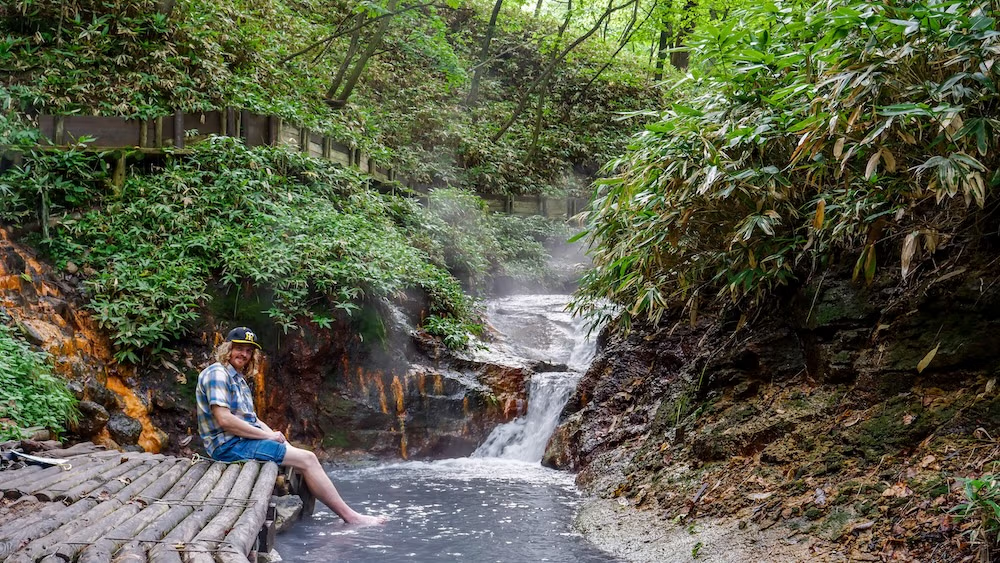
Unique Features of Noboribetsu Onsen
Hell Valley (Jigokudani)
Hell Valley, or Jigokudani, is the most iconic landmark of Noboribetsu Onsen, showcasing the raw geothermal power that fuels the town’s hot springs. This dramatic valley is characterized by:
- Active Geothermal Activity: Featuring steaming vents, bubbling pools, and sulfurous streams, Hell Valley is a visual testament to the region’s volcanic activity. The constant emission of steam and the dynamic changes in the landscape create a mesmerizing and ever-evolving natural spectacle.
- Sulfuric Aroma: The air in Hell Valley is rich with the scent of sulfur, a hallmark of the area’s hot springs. This distinctive aroma is not only a sensory experience but also indicative of the mineral-rich waters that offer therapeutic benefits.
- Boardwalks and Trails: Well-maintained boardwalks allow visitors to safely explore the valley, providing close-up views of the geothermal features without risking exposure to harmful gases or extreme temperatures.
Diverse Onsen Types
Noboribetsu Onsen offers a wide array of hot springs, each with its own unique mineral composition and health benefits:
- Sulfur Springs (Onsen Ichigo):
- Characteristics: These springs emit a strong sulfur smell and often have a milky-white appearance due to the high sulfur content.
- Health Benefits: Sulfur-rich waters are known for their skin-healing properties, improving complexion, and treating various skin conditions like eczema and acne. They also help relieve rheumatism and joint pain.
- Iron-Rich Springs (Tetsu Onsen):
- Characteristics: Iron-rich waters have a reddish tint and are often warm to the touch.
- Health Benefits: These springs are excellent for soothing muscle aches, joint pains, and improving blood circulation. The high iron content aids in the treatment of anemia and promotes overall vitality.
- Saline Springs (Shio Onsen):
- Characteristics: Saline springs contain high levels of salt, giving the water a briny taste.
- Health Benefits: Saline waters are effective in relieving dry skin, improving circulation, and aiding in respiratory conditions. They also have a relaxing effect on the body, helping to reduce stress and promote mental well-being.
- Carbonated Springs (Shibaru Onsen):
- Characteristics: These springs are effervescent, with bubbles rising to the surface.
- Health Benefits: Carbonated waters enhance blood circulation, alleviate fatigue, and detoxify the body. They provide a refreshing and invigorating soak, perfect after a day of activities.
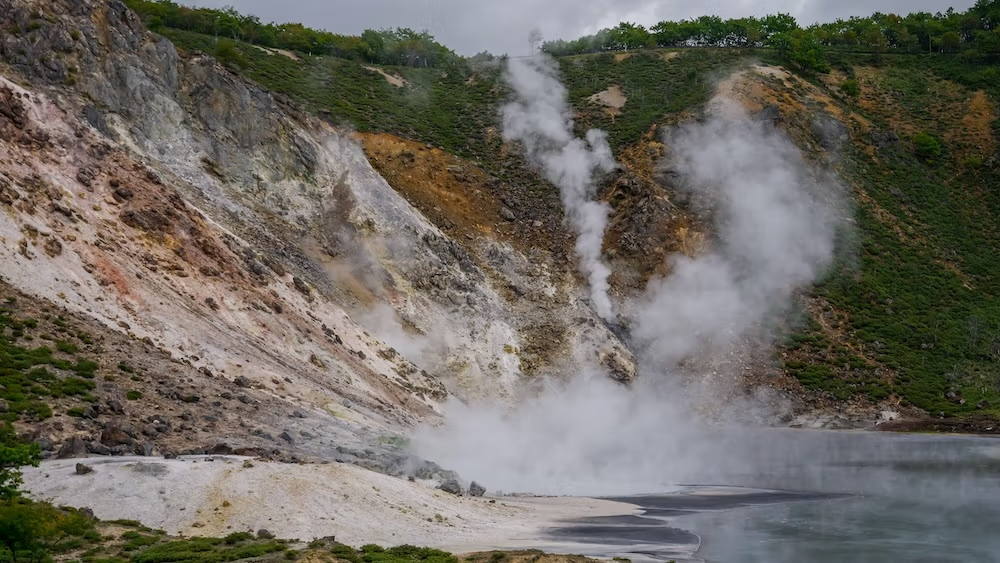
Scenic Beauty and Natural Environment
Noboribetsu Onsen is surrounded by stunning natural landscapes that enhance the onsen experience:
- Volcanic Landscapes: The rugged terrain, dotted with volcanic rocks and steaming vents, creates a dramatic and picturesque setting. The interplay of light and shadow on the volcanic formations adds to the valley’s mystique.
- Lush Forests and Wildlife: The surrounding forests are home to diverse flora and fauna, including Japanese serow, deer, and a variety of bird species. Nature walks and guided tours offer opportunities to observe wildlife in their natural habitats.
- Seasonal Changes: Noboribetsu Onsen’s landscapes transform with the seasons, offering different visual experiences throughout the year. From vibrant autumn foliage to serene winter snowscapes, each season brings its own unique charm.
Cultural Significance and Traditional Practices
Noboribetsu Onsen is steeped in cultural heritage, with traditions and practices that have been preserved over generations:
- Traditional Ryokan: Many ryokan in Noboribetsu maintain traditional Japanese architectural styles and hospitality practices. Guests can experience authentic Japanese living with tatami-matted rooms, futon bedding, and communal baths.
- Cultural Festivals: The town hosts various festivals throughout the year that celebrate local culture, history, and seasonal changes. These events often feature traditional music, dance, and performances that provide insight into the region’s cultural identity.
- Local Crafts and Arts: Noboribetsu Onsen is home to artisans who produce traditional crafts, including pottery, textiles, and woodworking. Visitors can explore local workshops and galleries to appreciate and purchase unique handmade items.
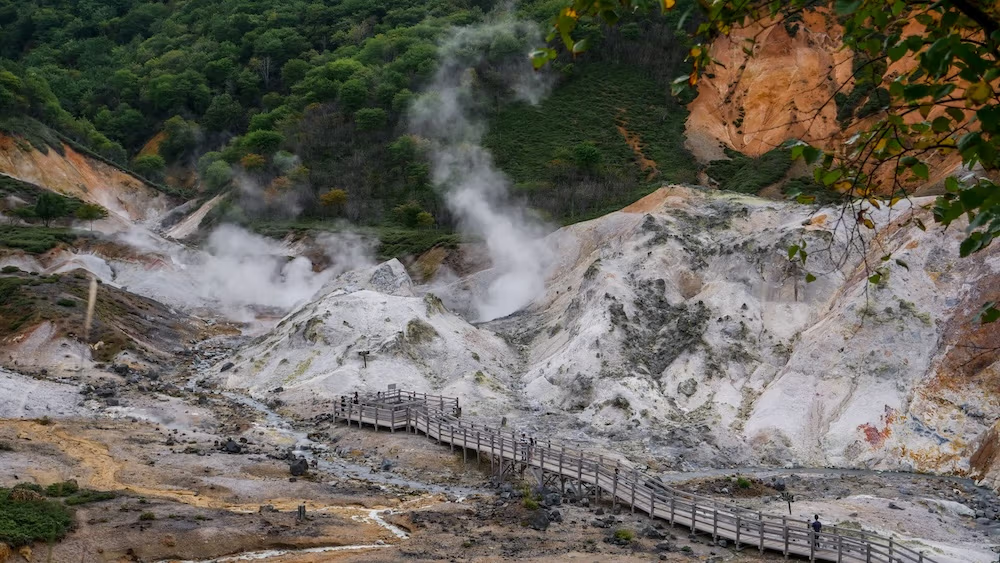
Top Attractions in Noboribetsu
Exploring Hell Valley and Its Dramatic Landscapes
Jigokudani (Hell Valley)
Jigokudani, or Hell Valley, is the crown jewel of Noboribetsu Onsen. This geothermal wonderland offers a captivating glimpse into the region’s volcanic activity and natural forces. Key highlights include:
- Steam Vents and Geysers: Numerous steam vents and geysers dot the valley, continuously emitting hot gases and steam. These geothermal features create a surreal and otherworldly atmosphere, making Jigokudani a must-visit for nature enthusiasts and photographers.
- Sulfurous Streams: Streams laden with sulfur run through the valley, forming small waterfalls and unique geological formations. The combination of flowing water and sulfur emissions adds to the dramatic scenery.
- Observation Points: Strategic lookout points along the boardwalks provide panoramic views of the valley’s geothermal activity. These spots are perfect for taking in the full extent of Jigokudani’s natural beauty.
Dai-ichi Takimotokan
As one of Japan’s largest and most renowned hot spring resorts, Dai-ichi Takimotokan offers a comprehensive onsen experience. Features include:
- Variety of Baths: Dai-ichi Takimotokan boasts a wide range of baths, including indoor and outdoor onsen. Each bath has a distinct mineral composition and setting, catering to different preferences and therapeutic needs.
- Themed Onsen Areas: The resort features themed onsen areas, such as the Showa Village, which replicates the ambiance of 1950s Japan, and the Valley of Wonders, an outdoor area surrounded by lush greenery and natural hot springs.
- Relaxation Facilities: In addition to the baths, Dai-ichi Takimotokan offers relaxation lounges, massage services, and wellness centers, allowing guests to fully unwind and rejuvenate.
- Japanese Gardens and Meditation Spaces: The resort includes traditional Japanese gardens and tranquil spaces for meditation, providing a serene environment for reflection and relaxation.
Wildlife Parks and Natural Reserves
Noboribetsu Date Jidaimura
Noboribetsu Date Jidaimura is a historical theme park that transports visitors back to Edo-period Japan. Highlights include:
- Samurai Performances: Live samurai demonstrations and reenactments showcase traditional Japanese martial arts and warrior culture, providing an engaging and educational experience.
- Traditional Crafts: The park features workshops where visitors can observe and participate in traditional crafts such as pottery, calligraphy, and kimono weaving.
- Authentic Buildings: Replica Edo-period buildings, including shops, inns, and residences, offer a glimpse into daily life during the historical era. Strolling through the park feels like stepping back in time, with detailed architectural elements and period-appropriate decorations.
- Interactive Exhibits: Interactive exhibits and hands-on activities allow visitors to immerse themselves in historical practices, making it a fun and informative destination for families and history enthusiasts.
Mount Noboribetsu
Mount Noboribetsu is a prominent peak that offers excellent hiking opportunities and breathtaking views. Key features include:
- Hiking Trails: The mountain is accessible via several well-marked trails that cater to different skill levels. Whether you’re an experienced hiker seeking a challenging ascent or a casual walker enjoying a leisurely trek, Mount Noboribetsu has a trail for you.
- Panoramic Views: The summit provides panoramic vistas of the surrounding landscape, including Hell Valley, Lake Kuttara, and the distant snow-capped peaks. The views are particularly stunning during sunrise and sunset.
- Flora and Fauna: The diverse ecosystems on Mount Noboribetsu support a variety of plant and animal species. Hikers can encounter vibrant wildflowers in the summer, colorful autumn foliage, and hardy alpine vegetation that thrives in the harsher climates.
- Wildlife Spotting: The mountain is home to various wildlife, including Japanese serow, deer, and numerous bird species. Wildlife spotting adds an element of excitement and discovery to your hiking adventure.
Lake Kuttara
Lake Kuttara is a serene and picturesque lake that offers a peaceful escape from the bustling town center. Key attractions include:
- Boating and Water Activities: Visitors can enjoy boating on the calm waters of Lake Kuttara, with options for paddle boats and small motorboats. The lake is also suitable for fishing, providing a relaxing pastime for nature lovers.
- Picnic Areas: Designated picnic spots around the lake offer shaded areas where families and friends can gather to enjoy a meal amidst nature. Bring a blanket and your favorite snacks to fully immerse yourself in the tranquil setting.
- Walking Trails: Scenic walking paths encircle Lake Kuttara, allowing visitors to stroll at their own pace while taking in the stunning natural beauty. The trails are well-maintained and suitable for all ages.
- Photography Opportunities: The picturesque landscape of Lake Kuttara, framed by mountains and forests, provides numerous opportunities for photography. The calm waters reflect the surrounding scenery, creating mirror-like images that are perfect for capturing memorable shots.
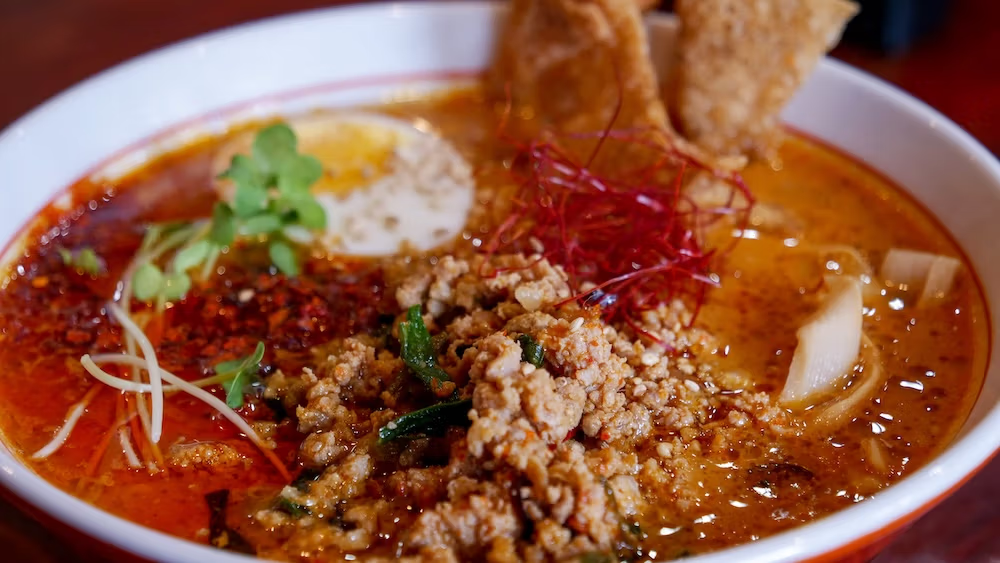
Tips for Visiting Noboribetsu
- Best Times to Experience the Geothermal Sights: Late spring to early autumn offers milder weather for exploring Hell Valley and participating in outdoor activities. The pleasant temperatures make it easier to walk along the boardwalks and fully appreciate the dramatic landscapes.
- Combining Onsen Visits with Outdoor Adventures: Noboribetsu offers a plethora of activities beyond soaking in hot springs. Consider combining your onsen visits with hiking, wildlife exploration, and cultural experiences to create a well-rounded itinerary.
- Local Transportation: Noboribetsu provides free shuttle buses that connect major attractions within the town. Utilizing these buses makes it easy to navigate without the need for a car, allowing you to focus on enjoying your onsen experience.
Pro Tip: Visit early in the morning or late in the afternoon to avoid the crowds and enjoy a more peaceful onsen experience. These quieter times allow for a more relaxed and intimate soak, enhancing the therapeutic benefits of the hot springs.
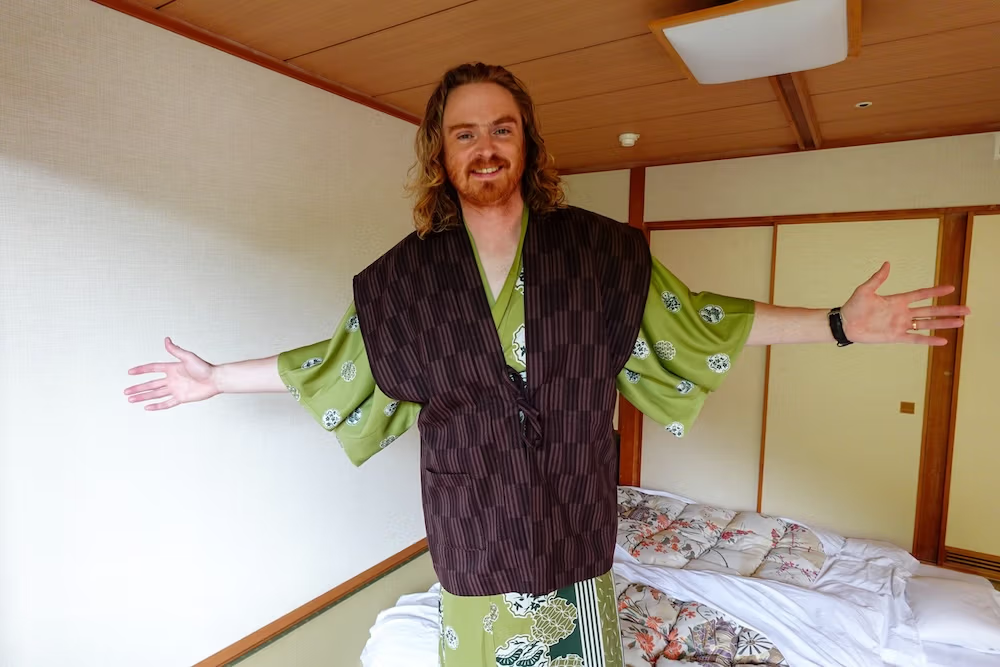
Comparing Norikura, Yuzawa, and Noboribetsu
Atmosphere and Experience
Each of these onsen towns offers a distinct atmosphere and experience, catering to different preferences and interests.
- Norikura: Embraces a serene mountain environment, making it perfect for those seeking tranquility and a deep connection with nature. The lush landscapes and calm surroundings provide a peaceful retreat away from the hustle and bustle of city life.
- Yuzawa: Boasts a vibrant and lively resort atmosphere, especially during the ski season. The town’s energetic vibe, coupled with excellent winter sports facilities, makes it an ideal destination for active travelers and those looking to combine relaxation with adventure.
- Noboribetsu: Offers a unique blend of dramatic geothermal landscapes and traditional onsen experiences. The presence of Hell Valley adds a touch of the extraordinary, making Noboribetsu a fascinating destination for those interested in both natural wonders and cultural heritage.
Best Times to Visit Each Town
Each onsen town shines in different seasons, offering unique attractions and experiences throughout the year.
- Norikura:
- Spring & Autumn: Ideal for hiking and enjoying seasonal foliage. Spring brings blooming cherry blossoms and vibrant greenery, while autumn showcases a stunning display of fall colors.
- Winter: Offers a quiet retreat with a snow-covered landscape, perfect for those seeking solitude and a peaceful onsen experience.
- Yuzawa:
- Winter: Peak season for skiing and snowboarding, attracting winter sports enthusiasts from around the world.
- Summer: Great for hiking, rafting, and cycling, allowing visitors to enjoy the natural beauty of Niigata Prefecture in a different light.
- Noboribetsu:
- Spring to Autumn: Best for exploring Hell Valley and engaging in outdoor activities. The milder weather enhances the experience of walking through the geothermal landscapes.
- Winter: Offers a serene, snow-covered onsen experience, providing a tranquil escape amidst the snowy Hokkaido wilderness.
Unique Selling Points
Each onsen town has its own unique selling points that make it special and worth visiting.
- Norikura:
- Perfect for Nature Lovers and Hikers: With its stunning mountain views, extensive hiking trails, and pristine natural surroundings, Norikura is a haven for those who appreciate the great outdoors.
- Yuzawa:
- Top Choice for Winter Sports Enthusiasts: Yuzawa’s exceptional ski resorts and lively resort atmosphere make it a favorite among winter sports lovers. Its accessibility via Shinkansen also adds to its appeal as a convenient getaway.
- Noboribetsu:
- Unique Geothermal Experience: The presence of Hell Valley and a wide variety of mineral-rich hot springs set Noboribetsu apart. Its dramatic landscapes and diverse onsen options offer a one-of-a-kind onsen experience.
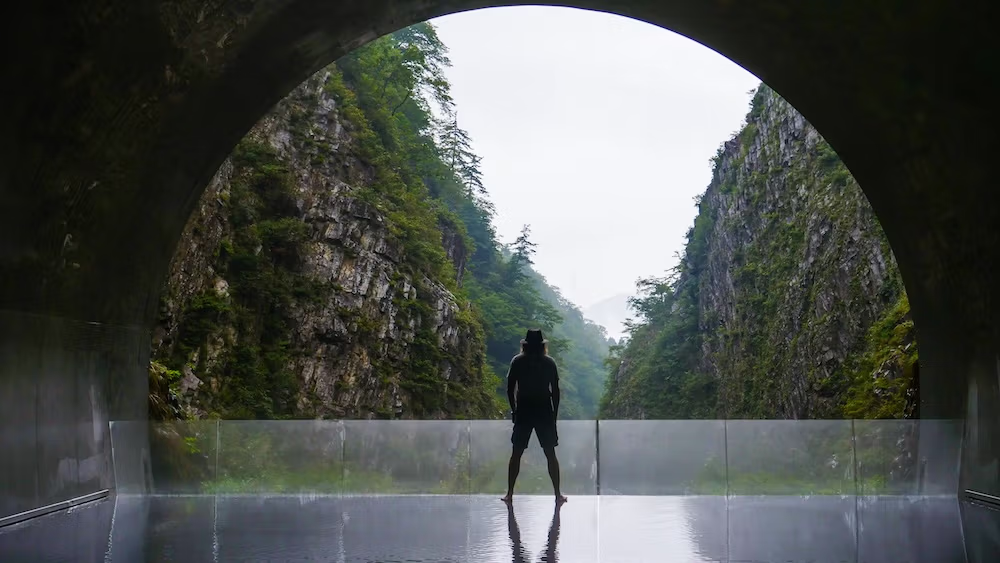
Practical Tips for Onsen Travelers
Onsen Etiquette
Understanding and respecting onsen etiquette is crucial for a positive and respectful experience. Japanese onsen have specific customs that ensure a harmonious environment for all guests.
Do’s:
- Wash Before Entering: Cleanse your body thoroughly before soaking in the onsen. Most facilities provide showers and soap for this purpose. Take your time to ensure you are completely clean.
- Use a Towel: Bring a small towel for modesty and to cover yourself while walking to and from the bath. The towel should not be submerged in the water.
- Respect Quietness: Maintain a peaceful demeanor to preserve the relaxing atmosphere. Avoid loud conversations, and keep noise to a minimum.
Don’ts:
- Don’t Wear Swimwear: Onsens are traditionally enjoyed nude. Swimwear is not allowed, as it interferes with the onsen experience and hygiene.
- Don’t Submerge Your Head: Avoid getting your head under the water to prevent contamination and maintain hygiene.
- Don’t Bring Towels into the Bath: Keep towels outside the soaking area to prevent contamination of the onsen water.
How to Prepare for Your Onsen Experience:
- Shower Thoroughly: Ensure you are completely clean before entering the hot spring. This is not only a matter of hygiene but also a sign of respect for other guests.
- Check for Tattoos: Some onsens may have restrictions on tattoos, associating them with tattoos used by yakuza (Japanese organized crime). It’s best to inquire in advance or look for tattoo-friendly onsens.
- Relax and Unwind: Allow yourself to fully enjoy the therapeutic benefits of the onsen. Let go of stress, breathe deeply, and savor the warmth and minerals of the water.
Choosing the Right Onsen for You
Selecting the perfect onsen depends on various factors that align with your preferences and needs.
- Location: Consider the proximity to other attractions and ease of access. If you plan to explore surrounding areas, choose an onsen that serves as a convenient base.
- Type of Hot Spring: Different mineral compositions offer varied health benefits. Choose based on what you’re seeking, whether it’s skin benefits, muscle relaxation, or overall wellness.
- Amenities: From traditional baths to modern spa facilities, choose an onsen that offers the amenities you desire. Some may offer private baths, while others provide communal facilities.
- Atmosphere: Decide whether you prefer a serene, secluded environment or a vibrant, social setting. Some onsens are more family-friendly, while others cater to couples or solo travelers.
Packing Essentials for an Onsen Trip
To ensure a comfortable and enjoyable onsen experience, consider packing the following essentials:
- Comfortable Clothing: Lightweight layers for exploring and relaxation. Evenings can be cooler, so having an extra layer is advisable.
- Swimwear (if necessary): While most traditional onsens require nudity, some modern facilities may allow swimwear. Check in advance and pack accordingly.
- Towel: A small towel for personal use, though most onsens provide one. Ensure it’s suitable for covering yourself while moving around the facility.
- Toiletries: Including shampoo, conditioner, and soap, as not all accommodations provide them. Having your own ensures you have everything you need.
- Reusable Water Bottle: Stay hydrated while enjoying outdoor activities. Carrying your own bottle reduces waste and keeps you refreshed.
Recommendations for Travel Gear and Attire:
- Lightweight Backpack: For carrying essentials during day trips. A compact and comfortable backpack will make your excursions more enjoyable.
- Sturdy Footwear: Comfortable shoes for hiking and exploring. Opt for shoes that provide good support and are suitable for the terrain you’ll be navigating.
- Seasonal Clothing: Appropriate attire for the weather, whether it’s warm summer days or cold winter nights. Dressing in layers allows you to adjust to changing temperatures.
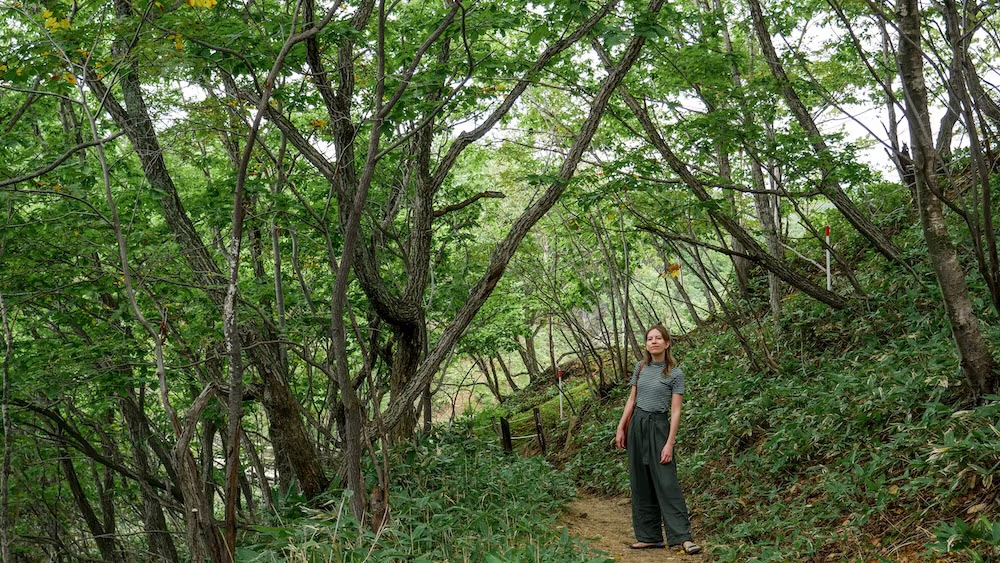
Planning Your Onsen-Focused Japan Itinerary
If you’re anything like us, once you get a taste of onsen life it stops being “a side activity” and becomes the whole point of the trip. You start planning your days around soak times, meal times, and when you can sneak in one more rotenburo session under the stars.
Norikura, Yuzawa, and Noboribetsu each scratch a different itch, so it helps to think in terms of trip style rather than just geography.
Here’s a quick snapshot to help you frame your plans:
| Trip Style | Length | Base Towns | Vibe | Best For |
|---|---|---|---|---|
| Mountain Escape | 3–4 days | Norikura | Quiet, nature-heavy, slow pace | Hikers, photographers, introverts |
| Ski & Soak | 3–5 days | Yuzawa | Lively, sporty, lots of nightlife | Skiers, groups of friends, mixed abilities |
| Geothermal Wonderland | 3–4 days | Noboribetsu | Dramatic, otherworldly, cozy | First-timers, families, onsen obsessives |
| Onsen Sampler | 7–10 days | Norikura + Yuzawa + Noboribetsu | Varied, “greatest hits” | Curious travelers who want contrast |
Sample 7-Day “Onsen Sampler” Itinerary
This works especially well if you’re starting and ending in Tokyo and don’t mind a bit of train time. You could tweak the order depending on flights and rail passes, but the flow below keeps things fairly relaxed.
Day 1 – Tokyo to Yuzawa
- Morning: Take an early Shinkansen up to Yuzawa. You can be soaking in an onsen by lunchtime.
- Afternoon: Drop your bags at your accommodation, rent simple ski gear if it’s winter or a bike if it’s summer, and get your bearings.
- Evening: First proper onsen session, then a hearty kaiseki-style dinner or a casual izakaya meal with local sake.
Day 2 – Full Day in Yuzawa
- Winter: Ski or snowboard until your legs give out. End the day in an outdoor bath while snowflakes drift down.
- Summer: Mix easy hiking with a ropeway ride for views, plus a river walk or gentle cycling.
- Evening: Try a different onsen (public bath or day-use facility) to feel the difference in water and atmosphere.
Day 3 – Yuzawa to Norikura
- Morning: Travel towards the Alps area; expect at least one change of train and a bus leg up into the mountains.
- Afternoon: Check into a ryokan or minshuku in Norikura. Wander the highlands, visit a waterfall, or just breathe in the cool air.
- Evening: Slow, contemplative soak. Norikura nights are made for early bedtimes and long sleeps.
Day 4 – Norikura Highlands Day
- Daytime: Choose a hike suitable for your fitness level—gentle plateau walks or more serious trekking up into alpine terrain.
- Midday: Simple mountain hut lunch or convenience-store bentos eaten beside a stream.
- Late afternoon: Foot bath or second onsen before dinner.
- Evening: Quiet time with a book, journaling, or going through photos. The pace here is intentionally slower.
Day 5 – Norikura to Noboribetsu
This is your longer travel day, but it’s still doable with some planning.
- Morning: Head back down to the mainline and connect to your Shinkansen/flight north (depending on how you’ve arranged it).
- Afternoon: Arrive in Hokkaido and transfer to Noboribetsu. Check into a ryokan with in-house baths.
- Evening: Short stroll through the onsen town, then first Hokkaido-style dinner—think rich broths, seafood, and heartier flavours.
Day 6 – Noboribetsu & Hell Valley
- Morning: Walk the boardwalks around Jigokudani before the crowds; the steam and bubbling vents feel extra eerie in the quiet.
- Afternoon: Choose between a longer hike (towards Lake Kuttara or the forested trails) or a lazy day of multiple soaks and naps.
- Evening: One last big onsen session, maybe trying different pools (sulfur-rich, iron-rich, saline) to feel the contrasts in your body.
Day 7 – Return Travel
- Morning: Early soak, simple breakfast, and then make your way back towards Sapporo or your departure city.
- Afternoon: If you have extra time, slot in a final quick onsen stop at an airport bath or day-use facility. Ending with hot water feels right.
You can stretch this itinerary to 10 days by adding extra hiking in Norikura, a second ski day in Yuzawa, or more slow time in Hokkaido. The key is to resist the urge to cram in too many towns. Let the baths set the rhythm.
Where to Stay: Neighbourhood and Area Breakdown
You don’t need to memorize street names in these onsen towns. Choosing the right “zone” changes your entire experience. Think carefully about whether you value quiet, convenience, or nightlife most.
Norikura: Trailheads, Highlands, and Quiet Corners
Norikura feels more like a spread-out highland than a dense town, so your main choice is between being close to trailheads or closer to bus connections and small clusters of shops.
| Norikura Area | Vibe | Pros | Cons | Best For |
|---|---|---|---|---|
| Highland Plateau | Quiet, nature-first | Easy access to hiking, great views | Fewer shops, limited evening options | Hikers, photographers |
| Near Bus Terminal | Practical, low-key | Easier transport, small eateries | Less “remote” feeling, can feel functional | Non-drivers, short stays |
| Ryokan Cluster Zones | Cozy, traditional | Multiple baths nearby, classic feel | Can be pricier, more structured meal times | Couples, onsen romantics |
| Outlying Pensions | Rustic, homely | Often family-run, good value | Need car or bus savvy, limited English | Budget travelers, long stays |
If you’re coming mainly for hiking, basing yourself close to trail access or highland bus stops saves time and energy each day. If onsen is your top priority and you’re okay with less walking, lean towards ryokan clusters where you can roll from your room to the baths in two minutes.
Yuzawa: Ski-In Convenience vs Town-Centre Character
Yuzawa is more compact and feels like a proper resort town, but there are still subtle differences depending on where you stay.
| Yuzawa Area | Vibe | Pros | Cons | Best For |
|---|---|---|---|---|
| Near Station | Convenient, busy | Step off Shinkansen and you’re there | Less alpine scenery, more concrete | Short trips, non-skiers |
| Ski-In/Ski-Out Hotels | Sporty, all-in-one | Roll from breakfast to slopes to onsen | Higher prices, can feel “resort bubble” | Skiers, groups, families |
| Town-Centre Ryokan | Traditional, walkable | Mix of bars, izakaya, shops, and baths | Can be noisy in peak season | Food lovers, nightlife seekers |
| Outskirts & Valleys | Quiet, nature-focused | Better views, relaxed atmosphere | Need transport, fewer dining choices | Couples, slow travelers |
If you’re doing a quick winter escape, staying near the station or at a ski-in property is incredibly convenient. For a longer trip, town-centre ryokan give you more variety at night: you can go out for ramen one evening, yakitori the next, and still end every day in the hot springs.
Noboribetsu: Onsen Street vs Forest Edges vs Lake Kuttara
Noboribetsu is all about the geothermal heart. You still get three distinct moods depending on where you sleep.
| Noboribetsu Area | Vibe | Pros | Cons | Best For |
|---|---|---|---|---|
| Main Onsen Street | Classic, atmospheric | Walk to Hell Valley, shops, multiple baths | Busier, more tour groups | First-timers, non-drivers |
| Forest Edge Ryokan | Quiet, retreat-like | More privacy, forest views, birdsong | Slightly longer walk or shuttle needed | Couples, wellness-focused stays |
| Near Lake Kuttara | Wild, lakeside | Beautiful scenery, cooler air in summer | Definitely need transport, fewer options | Nature lovers, repeat visitors |
For a first visit, staying right in the main onsen street makes life simple. You can wander to Hell Valley before breakfast, grab snacks, and hop between baths without planning anything complicated. On a second trip, shifting to a forest-edge ryokan or lakeside stay feels like leveling up.
Eating Well in Onsen Towns
Onsen days are hungry days. You soak, you nap, you walk a bit, and suddenly you’re ready to demolish a full multi-course dinner.
Ryokan Meals vs Eating Out
Most classic onsen trips revolve around the “two meals included” system at ryokan: dinner and breakfast served in-house. It’s hard to beat the convenience, especially in quieter places like Norikura.
Ryokan meal perks:
- You get seasonal, local dishes without needing to research anything.
- Portions tend to be generous; you won’t go to bed hungry.
- You can often eat in yukata, rolling straight from bath to table.
The trade-off is flexibility. If you love wandering between small eateries, bars, and street food, then:
- Yuzawa’s centre gives you more freedom to eat out.
- Noboribetsu’s main street has snacks, ramen shops, and casual spots to mix things up.
- Norikura is more “eat where you sleep,” so consider at least one night on a meal plan there.
Food Highlights by Town
You don’t need to chase one “famous restaurant” in each town. Instead, look for styles of food that suit the place.
Norikura:
- Simple mountain dishes: soba, hearty stews, grilled river fish.
- Seasonal vegetables and wild plants in tempura form.
- Light, clean flavours that feel perfect after a long hike.
Yuzawa:
- Rice dishes and donburi using local Niigata rice.
- Cozy noodle joints for big bowls of ramen or udon after skiing.
- Izakaya-style spots where you can order lots of small plates with drinks.
Noboribetsu:
- Rich broths and ramen to match the colder Hokkaido climate.
- Grilled seafood, especially if you venture further towards the coast.
- Hearty comfort food that pairs nicely with hot springs and cold air.
If you have dietary restrictions, ryokan can usually adapt if you tell them in advance. In smaller places, last-minute surprises are harder to accommodate, so it’s worth communicating preferences when you book.
Budgeting for an Onsen Trip
Onsen travel can be surprisingly affordable or pleasantly luxurious depending on how you structure it. A lot of your daily cost is determined by accommodation choice and whether meals are included.
Here’s a rough, ballpark guide (per person, per day), assuming you’re traveling in shoulder season and sharing a room:
| Budget Tier | Accommodation (pp, with or without meals) | Food & Snacks | Transport & Activities | Overall Daily Range |
|---|---|---|---|---|
| Budget | Simple minshuku / business hotel | Bento, cheap eats | Local trains/buses | Low–moderate |
| Midrange | Standard ryokan with breakfast & dinner | Extra snacks/drinks | Mix of trains & passes | Moderate |
| Splurge | High-end ryokan, private onsen | Drinks, extras | Reserved seats, taxis | Higher |
A few simple ways to keep things reasonable:
- Use day-use onsen instead of staying only at high-end ryokan.
- Aim for one or two “big” kaiseki dinners and balance them with simpler local meals.
- Combine a rail pass with local buses rather than relying on taxis everywhere.
For a mixed trip through Norikura, Yuzawa, and Noboribetsu, expect your daily costs to sit in the midrange column if you choose classic ryokan stays with meals. You can nudge that up or down depending on how fancy you go with rooms and how much you indulge in extras like massages and drinks.
Transport Choices: Train vs Car vs Bus
You can absolutely do all three towns without driving. Your comfort level with transfers and luggage juggling matters.
| Mode | Where It Shines | Downsides | Ideal Traveler |
|---|---|---|---|
| Shinkansen & Limited Express | Fast, comfortable, scenic | Set timetables, some transfers | First-timers, non-drivers |
| Local Buses | Short hops to onsen and trailheads | Less frequent, can be crowded in peaks | Patient planners, budget travelers |
| Car Rental | Remote spots, flexible timing | Snow/ice driving, parking, navigation | Confident drivers, repeat visitors |
If it’s your first time in Japan, sticking to rail and buses makes life easier. You can still reach all three onsen towns, and station staff are usually quite helpful. For a second or third onsen-focused trip, renting a car in Nagano or Hokkaido opens up quieter baths, trailheads, and viewpoints that are awkward by bus.
Seasonal Planning and Common Mistakes
Onsen towns feel very different depending on when you visit. Getting the timing right can make or break the mood of your trip.
Seasons vs Vibe
| Season | Norikura | Yuzawa | Noboribetsu |
|---|---|---|---|
| Spring | Melting snow, fresh green, cool hikes | Leftover snow, quieter slopes | Pleasant temps, less crowded trails |
| Summer | Lush highlands, great hiking temps | Green mountains, rafting, cycling | Cooler than cities, good for walking |
| Autumn | Peak foliage, crisp air | Fiery hillsides, photogenic valleys | Stunning colours around Hell Valley |
| Winter | Deep snow, very quiet, limited access | Peak ski season, busy and lively | Snowy onsen magic, icy paths |
A few classic mistakes to avoid:
- Underestimating weekends and holidays.
Golden Week, New Year, and big winter weekends can make Yuzawa and Noboribetsu feel packed. Book early or aim for weekdays. - Not checking seasonal closures.
Mountain roads, high passes, and some hiking routes around Norikura aren’t open year-round. Always double-check what’s realistically accessible when you’re going. - Over-scheduling.
Three different onsen towns in three days sounds efficient, but it mostly turns into trains, buses, and check-in times. Give yourself at least two nights in each place to actually enjoy the baths.
Onsen-Specific Mistakes People Make
Even experienced travelers slip up when it comes to hot springs. A few things you can quietly get right:
- Jumping straight into the hottest pool.
Start with a slightly cooler bath and work your way up. Your body will thank you. - Staying in too long.
Short sessions—5 to 10 minutes at a time with breaks—beat a single marathon soak. Step out, cool down, and go back in. - Forgetting to hydrate.
All that heat plus maybe a drink or two in the evening can dehydrate you quickly. Keep a bottle of water in your room and sip often. - Assuming every place allows tattoos.
Some baths are relaxed about it, others aren’t. If you have body art, look for explicit signs or ask quietly at reception; you’ll often be guided towards more flexible options or offered a private bath. - Treating yukata like optional costume.
Wearing the provided yukata and slippers isn’t just for aesthetics; it makes life around the ryokan simpler and more comfortable. You can walk between room, dining area, and baths without thinking about outfits.
Packing Essentials for Onsen Hopping
You don’t need a huge suitcase for an onsen-focused trip. A few smart items make everything more comfortable.
Clothing and Footwear
- Lightweight layers that can handle warm baths and cooler evenings.
- One set of comfy clothes you’ll be happy to wear to and from the bath if you’re not in yukata.
- Good walking shoes for trails and town wandering; in Norikura and Noboribetsu, paths can be uneven.
- Warm accessories (hat, gloves, thermal base layer) if you’re visiting in winter or shoulder season.
Onsen and Comfort Items
- A small quick-dry towel if you like having your own, even though most places provide one.
- A simple tote or drawstring bag for carrying towel, phone, and water bottle between room and baths.
- Travel-sized toiletries if you prefer familiar shampoo/conditioner over the shared options.
- A reusable water bottle so you’re not constantly buying drinks from vending machines.
Little Extras That Make a Big Difference
- Flip-flops or shower sandals for moving around more casual baths or hotel corridors.
- Earplugs and an eye mask if you’re a light sleeper; resort towns can be noisy in peak season.
- A compact power bank for your phone—photos, maps, and train apps can drain batteries quickly.
Frequently Asked Questions about Norikura, Yuzawa and Noboribetsu Onsen
Is it realistic to visit Norikura, Yuzawa and Noboribetsu in one Japan trip?
Yes, as long as you give yourself enough time. A 7–10 day itinerary works well if you’re happy to spend a few “train days” connecting the dots. A common flow is:
- Tokyo → Yuzawa (Joetsu Shinkansen)
- Yuzawa → Norikura (via Nagano / Matsumoto and bus into the highlands)
- Norikura → Hokkaido (back to a mainline, then Shinkansen or flight) → Noboribetsu
If you only have a week, we’d suggest two nights in each town and one “flex” night in Tokyo or Sapporo so the trip doesn’t feel rushed.
How many nights should I spend in each onsen town?
If you want to actually enjoy the baths instead of just ticking boxes, think in terms of minimum two-night stays:
- Norikura: 2–3 nights – one full day for hiking and one day for slower exploring and soaking.
- Yuzawa: 2–3 nights – especially in winter if you’re skiing or snowboarding.
- Noboribetsu: 2–3 nights – one day focused on Hell Valley and nearby trails, another for slow onsen time.
With only 4–5 nights total, pick one or two towns that match your current travel energy rather than trying to see all three.
When is the best season to visit each of these onsen towns?
It depends on what you want more: snow, foliage, or hiking.
- Norikura: Spring and autumn are incredible for hiking and views; winter is magical but more limited in access.
- Yuzawa: Winter is king for skiing and snow play; summer is surprisingly good for rafting, cycling and green mountains.
- Noboribetsu: Spring–autumn is ideal for walking Hell Valley’s trails; winter brings that “snowy onsen fantasy” vibe.
If you’re planning an “onsen sampler,” late October to mid-November can be a sweet spot for cooler weather, foliage, and fewer crowds in many parts of Japan.
Which town is best for a first-time onsen experience?
If it’s your very first onsen trip and you’re a bit nervous:
- Noboribetsu is fantastic for first-timers: lots of signage, big ryokan with many bath options, and clear “onsen town” structure.
- Yuzawa is also beginner-friendly, especially if you’re already comfortable in resort environments and want onsen as an add-on to skiing or summer activities.
- Norikura feels more “outdoorsy retreat” and is perfect if you already know you like onsen and want quieter surroundings.
For a first trip, we’d probably start with Yuzawa or Noboribetsu, then add Norikura once you’re hooked.
Can I visit these onsens if I have tattoos?
It depends on the property, but it’s getting easier every year.
- Many larger ryokan and hotels in Yuzawa and Noboribetsu are becoming more relaxed or have specific hours/areas where tattoos are tolerated.
- Smaller, traditional baths (especially in rural areas) may still prefer that tattoos are covered or may restrict access to shared baths.
- Workarounds:
- Look for “tattoo-friendly onsen” on booking sites.
- Use private baths (kashikiri) where available.
- In some baths, small tattoos can be covered with waterproof patches.
If tattoos are a big concern, email your accommodation in advance and ask directly – most places are happy to clarify.
Are Norikura, Yuzawa and Noboribetsu good for families and kids?
Definitely, as long as you choose the right style of stay.
- Norikura: Great for outdoorsy families who like walking, waterfalls and simple food. Evenings are very quiet, which is ideal for early bedtimes.
- Yuzawa: Probably the best choice for kids who love snow – plenty of ski schools, rental gear, and family-friendly hotels.
- Noboribetsu: Kids usually love Hell Valley’s steaming vents and the “volcano” feeling, plus nearby attractions like historical theme parks and easy walks.
Do check:
- Age rules in specific baths (some have minimum ages for communal onsens).
- Whether the ryokan has family rooms, western beds, or extra futons.
- Meal options for picky eaters – some places can offer simpler kids’ plates if requested in advance.
Do I need to speak Japanese to enjoy these onsen towns?
No, but a few phrases help a lot.
- In Yuzawa and Noboribetsu, you’ll usually find basic English signage at stations, bigger hotels, and major attractions.
- Norikura can feel more local, so English might be more limited, but simple communication with gestures, smiles, and translation apps goes a long way.
We’d recommend:
- Learning a few basics like “arigatou gozaimasu” (thank you), “onsen wa doko desu ka?” (where is the onsen?), and “tattoo daijoubu desu ka?” (are tattoos okay?).
- Keeping a translation app handy for bath rules or meal explanations.
Is it better to travel by train or rent a car for this itinerary?
For most first-time visitors, trains + buses are the sweet spot:
- The Shinkansen and Limited Express network gets you to Yuzawa and Hokkaido comfortably and quickly.
- Local buses cover Norikura highlands, onsen areas, and trailheads reasonably well.
A rental car starts to make sense if:
- You’re comfortable driving on the left and possibly in snow.
- You want to reach quieter trailheads, viewpoints, or smaller baths outside town centres.
- You’re returning to the same region multiple times and already know the basics.
If in doubt: do your first onsen trip by train and bus, then consider a rental car on a second visit.
How much should I budget per day for an onsen-focused trip?
Very roughly, per person, per day (sharing a room):
- Budget:
- Simple business hotel or minshuku, light meals, day-use baths.
- Local trains/buses only.
- Think of this as your “I just want hot springs, not luxury” mode.
- Midrange (most typical):
- Comfortable ryokan with dinner + breakfast included.
- A few snacks and drinks, plus train passes or reserved seats.
- This is the sweet spot for classic onsen experiences in Norikura, Yuzawa, and Noboribetsu.
- Splurge:
- High-end ryokan with private open-air baths, upgraded meals, massages.
- Taxis or private transfers on top of rail.
On a mixed trip through all three towns, most travellers will sit in the midrange, then sprinkle in one or two “wow” nights at a nicer ryokan.
What should I pack specifically for staying in ryokan and visiting public baths?
You don’t need much, but a few items make life easier:
- Layers: Light, packable layers for moving between hot baths and cool evenings.
- Good walking shoes: For trails in Norikura, sidewalks in Yuzawa, and boardwalks around Hell Valley.
- Small day bag: To carry towel, water bottle, phone and a book or Kindle.
- Personal toiletries: Most ryokan provide basics, but if you like specific shampoo or skincare, bring travel sizes.
- Simple loungewear: You’ll often be in yukata around the property, but it’s nice to have comfy clothes for travel days and town wandering.
Most onsen provide towels and amenities, so think more about outdoor comfort than bath gear.
I’m shy about nudity—can I still enjoy onsen in these towns?
Absolutely. A lot of people feel that way at first.
Some gentle ways to ease in:
- Start with your ryokan’s bath at quieter times (late morning, late evening) instead of a busy public onsen.
- Look for private baths (kashikiri) that you book by the hour – common in Noboribetsu and Yuzawa, and sometimes available in Norikura.
- Remember that everyone is there for the same reason: to relax. People aren’t paying attention to bodies; they’re focused on the water.
Many travellers find that after one or two soaks they forget about feeling self-conscious and just enjoy the experience.
Are there private or mixed-gender baths available?
Yes, but they vary by town and property:
- Private baths (kashikiri):
- Often bookable by the hour at midrange and higher-end ryokan.
- Great for couples, families, or anyone with tattoos or mobility issues.
- Mixed-gender baths (konyoku):
- Less common these days and usually more rural.
- If this is important to you, you’ll need to specifically search for konyoku options when booking.
If privacy is a priority, filter your accommodation search with “private onsen” or email the property before you commit.
Are these onsen towns accessible for travelers with limited mobility?
Accessibility is improving, but it’s still mixed:
- Yuzawa: Larger hotels, resort-style properties, and Shinkansen stations are often the most accessible, with elevators and some barrier-free rooms.
- Noboribetsu: Big ryokan may have ramps, lifts, and a few accessible baths, but Hell Valley’s boardwalks include slopes and stairs.
- Norikura: Trails and highland terrain can be challenging; some pensions and older ryokan have steep stairs and no lifts.
If mobility is a concern:
- Focus on modern hotels and larger ryokan with elevators.
- Email to ask specifically about step-free access to at least one bath, the dining area, and your room.
- Consider bringing a lightweight travel cane or walking stick for uneven paths.
What are some easy add-on destinations near each town?
If you have extra time, you can easily expand each base:
- From Norikura:
- Kamikochi for river walks and mountains.
- Matsumoto for its beautiful castle and compact city centre.
- From Yuzawa:
- Nearby ski resorts and mountain viewpoints.
- Niigata’s coastal areas for rice fields, sake breweries, and seaside towns.
- From Noboribetsu:
- Sapporo for city life, food, and snow festivals.
- Lake Toya or other Hokkaido lakes and national parks for more nature and views.
You can easily turn one “base town” into a small region if you love the feel of the area.
How far in advance should I book accommodation in these onsen towns?
It depends on season and style of stay:
- High seasons (ski season in Yuzawa, foliage weeks, Golden Week, New Year):
- Aim for 2–3 months in advance, especially for popular ryokan with good reviews.
- Shoulder seasons and weekdays:
- You can sometimes book a few weeks or even days ahead, but it’s still worth securing your top choices early.
Ryokan meals require planning and fresh ingredients, so early bookings help them prepare—and help you lock in better room categories and views.
Final Thoughts for Onsen Lovers
Norikura, Yuzawa, and Noboribetsu each show a different side of Japan’s onsen culture. One gives you thin, crisp mountain air and quiet trails. Another wraps hot springs around a full-blown ski scene. The last one bubbles and steams with volcanic energy under dramatic Hokkaido skies.
You don’t need to choose a “best” one.
Pick the town that fits your energy for this trip—calm, active, or curious—and let the hot springs do the heavy lifting. And if you can string all three together in a single journey, even better. That’s when Japan’s onsen world really starts to feel like its own little universe you’ll keep wanting to return to.
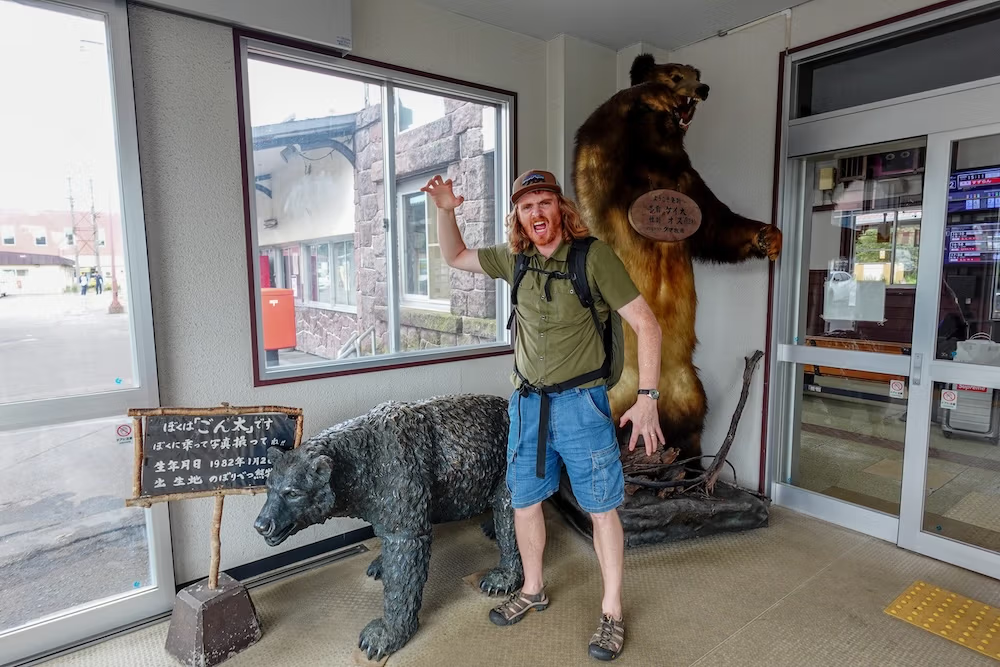
Additional Resources
Useful Links and References
- Norikura Onsen Tourism: Official Website
- Yuzawa Onsen Tourism: Official Website
- Noboribetsu Onsen Tourism: Official Website
Whether you seek relaxation, adventure, or cultural immersion, Norikura, Yuzawa, and Noboribetsu should be on your radar. Happy travels!
